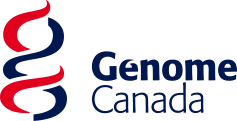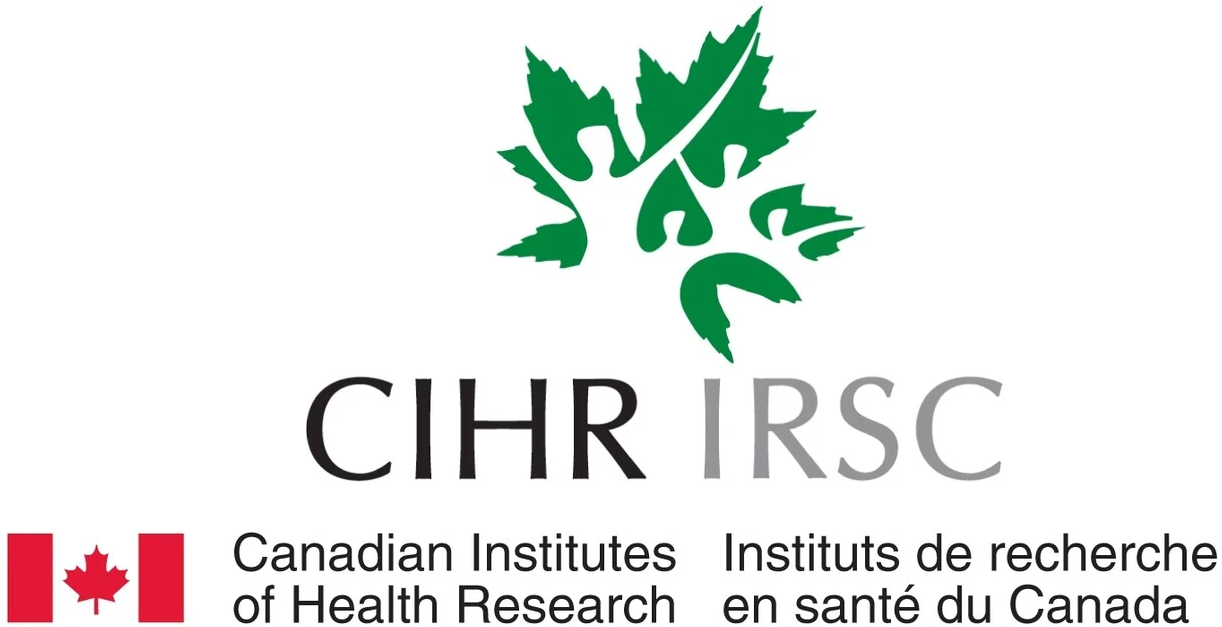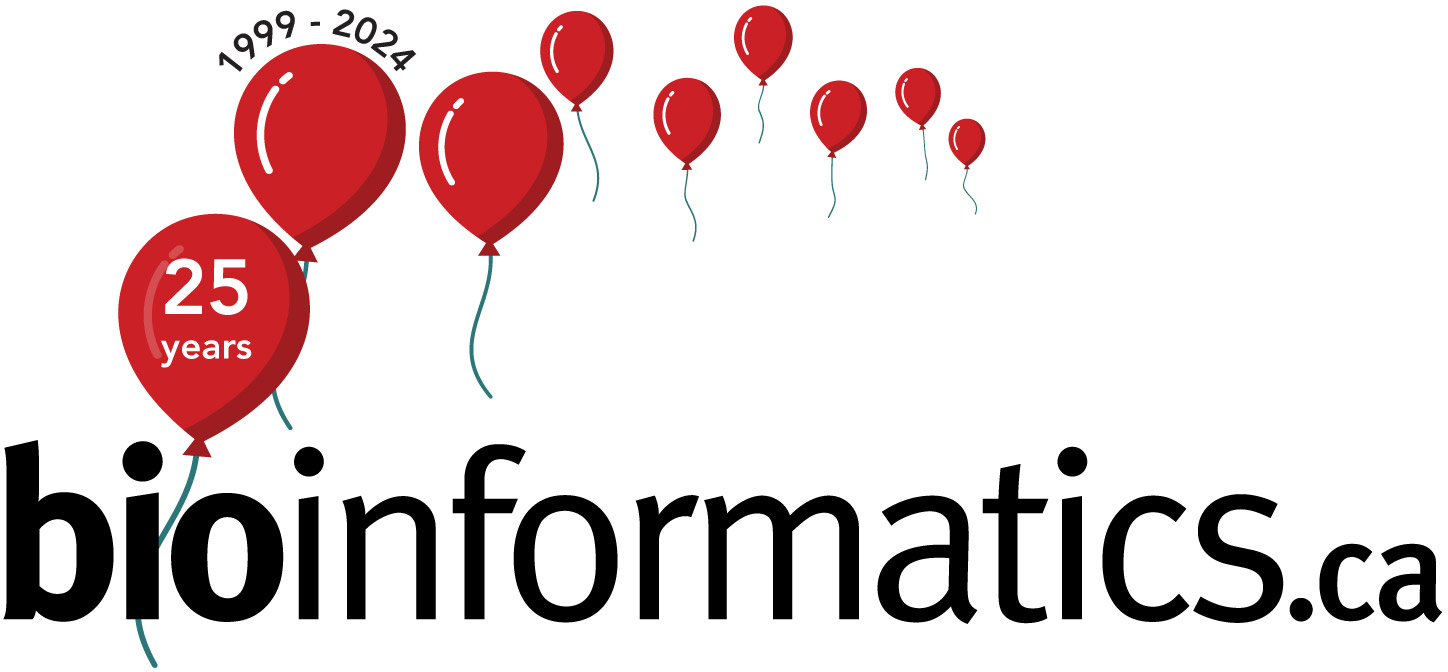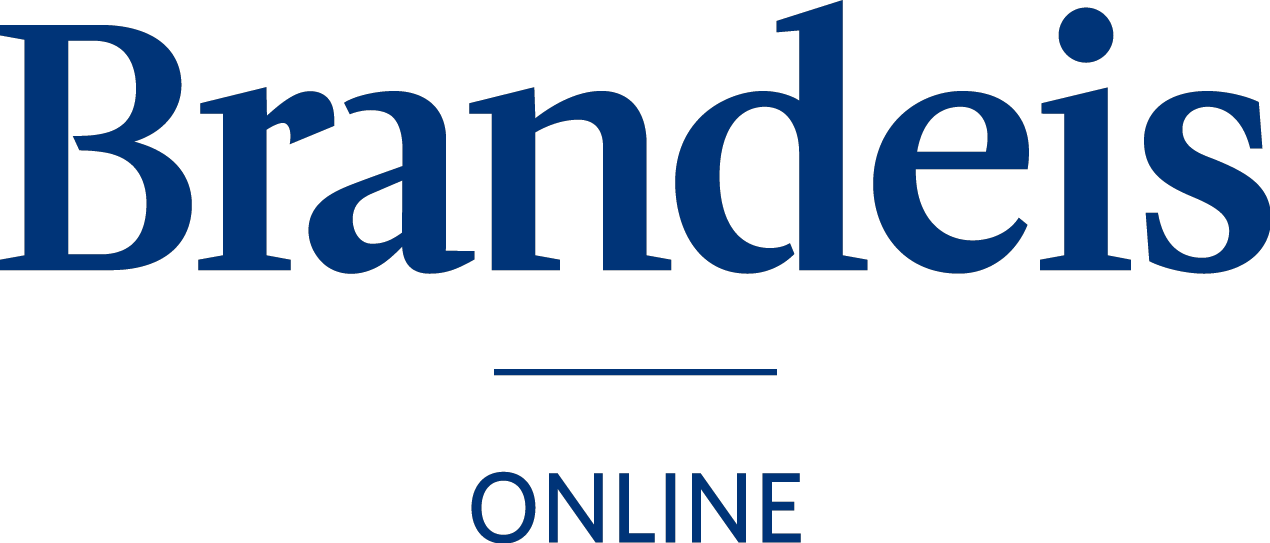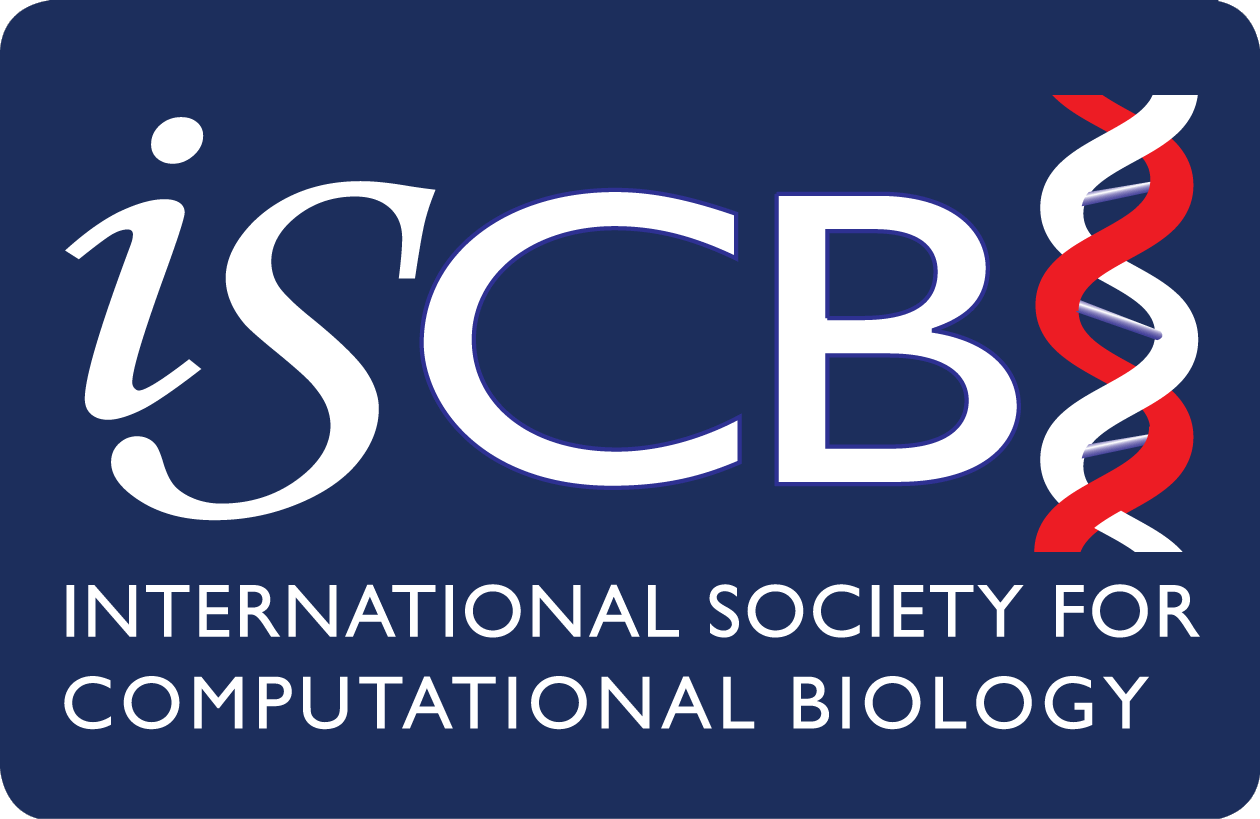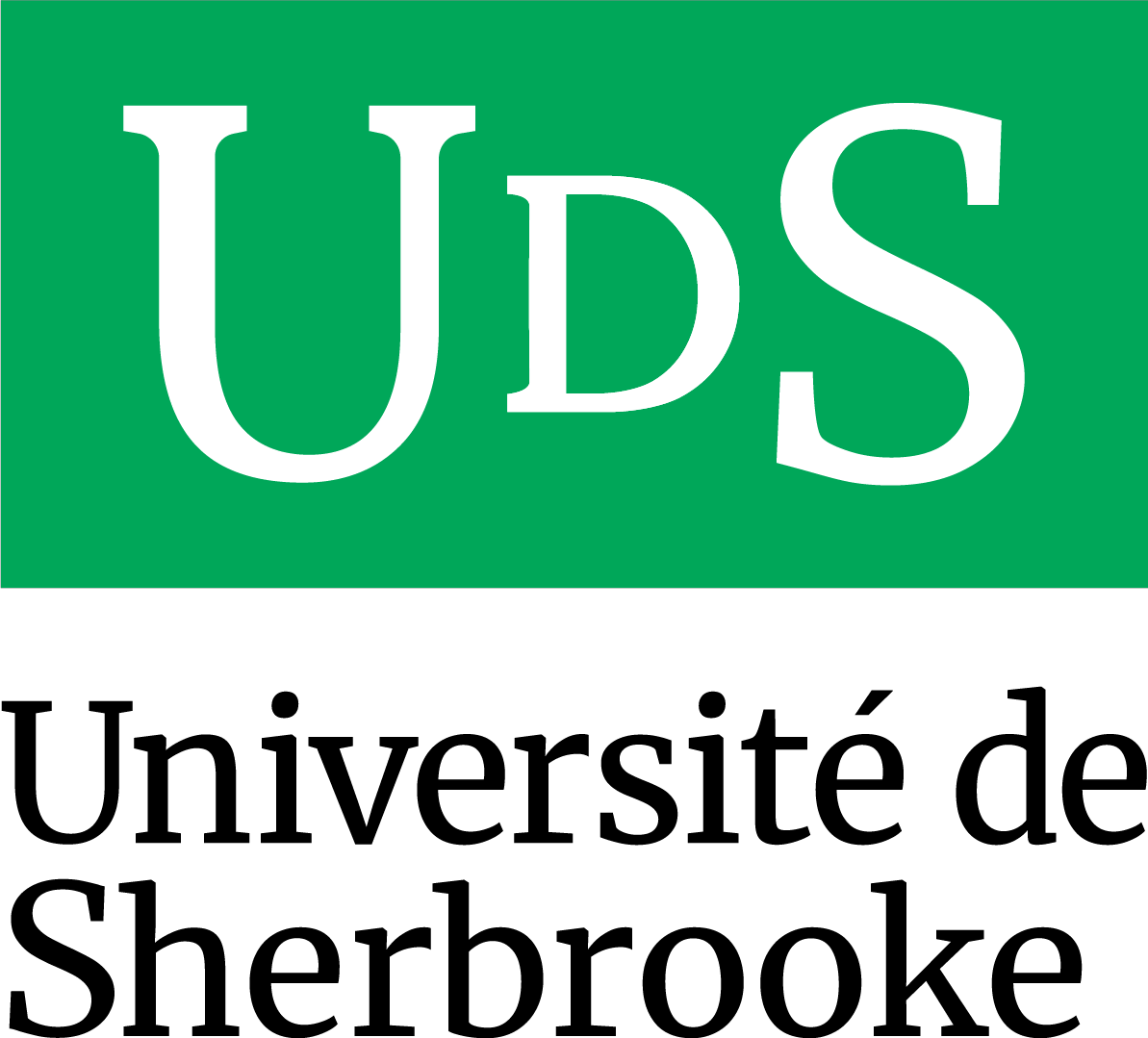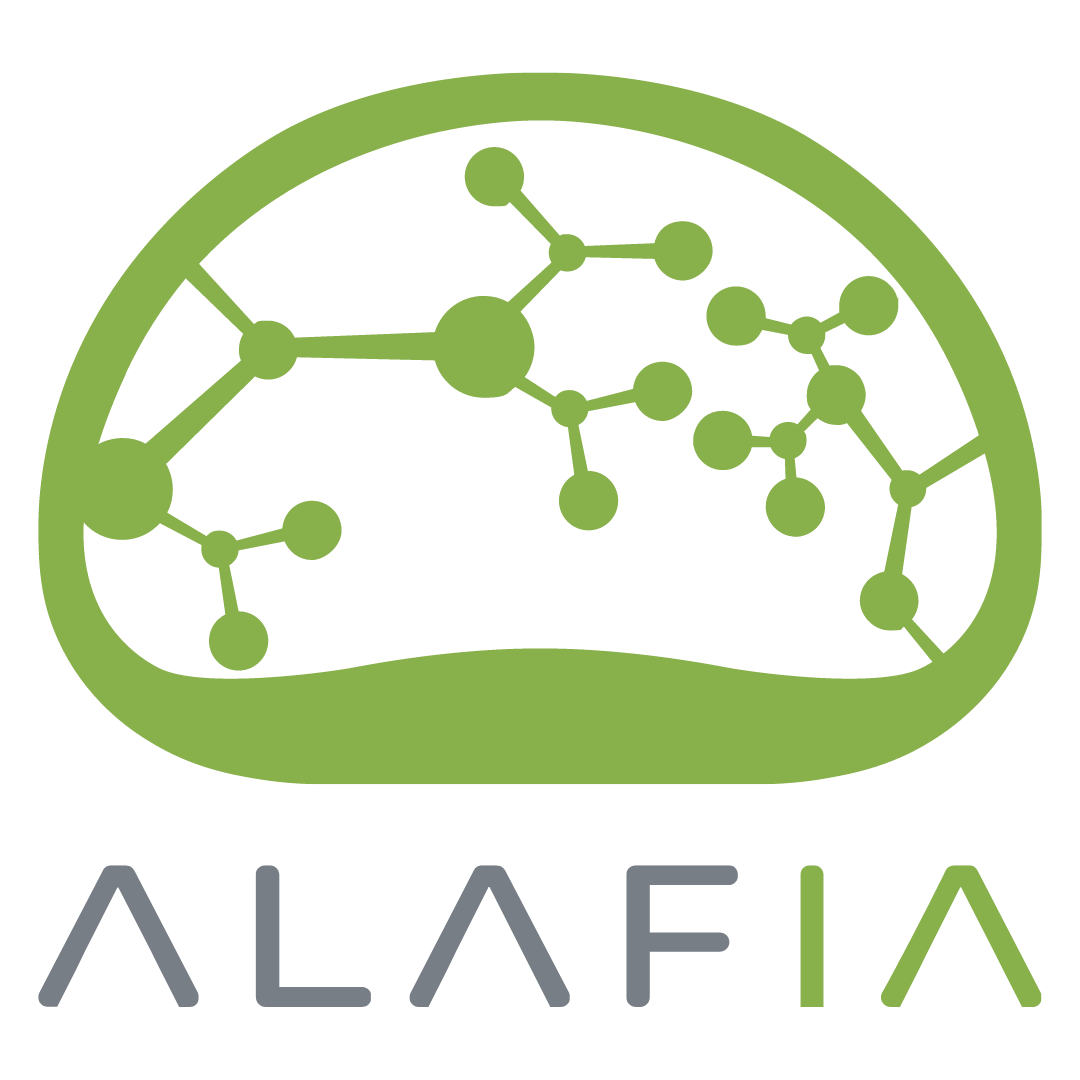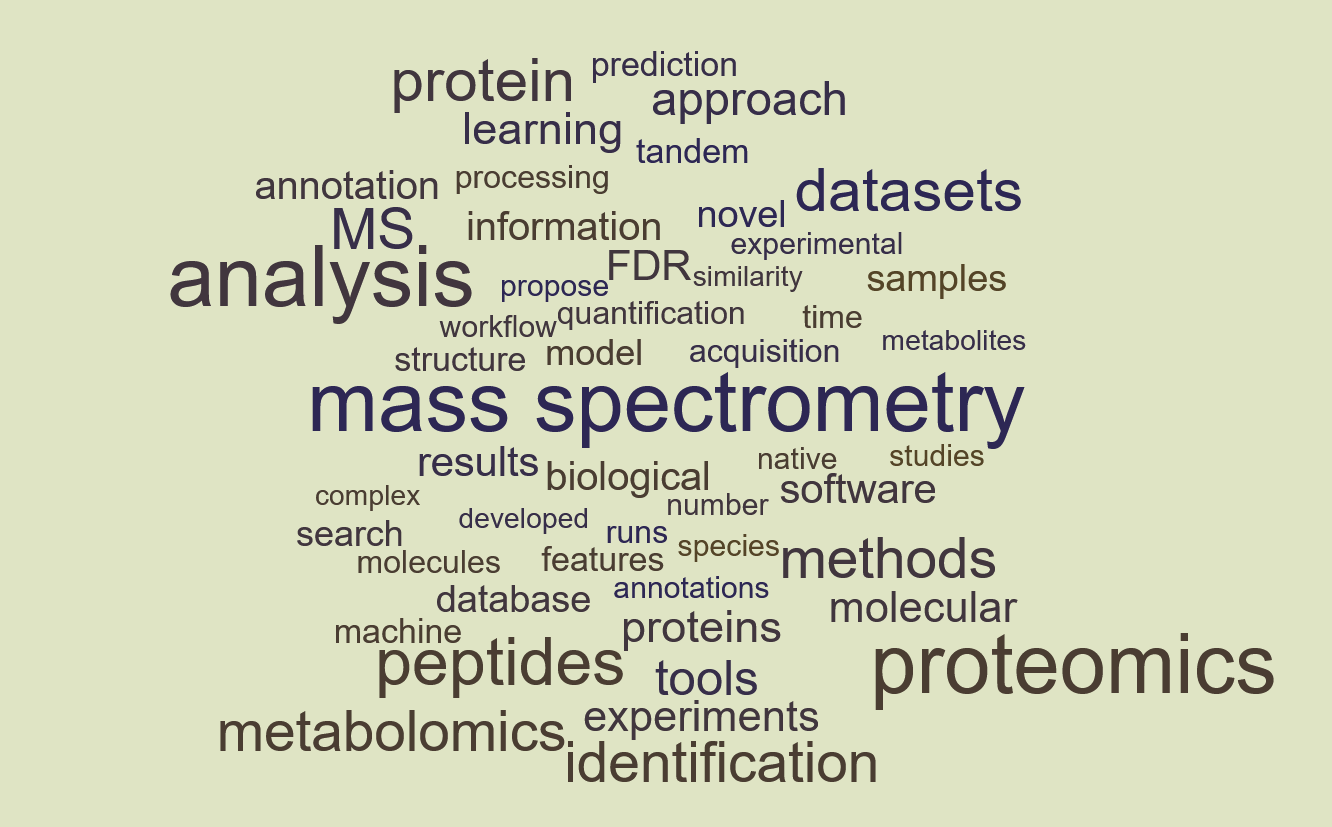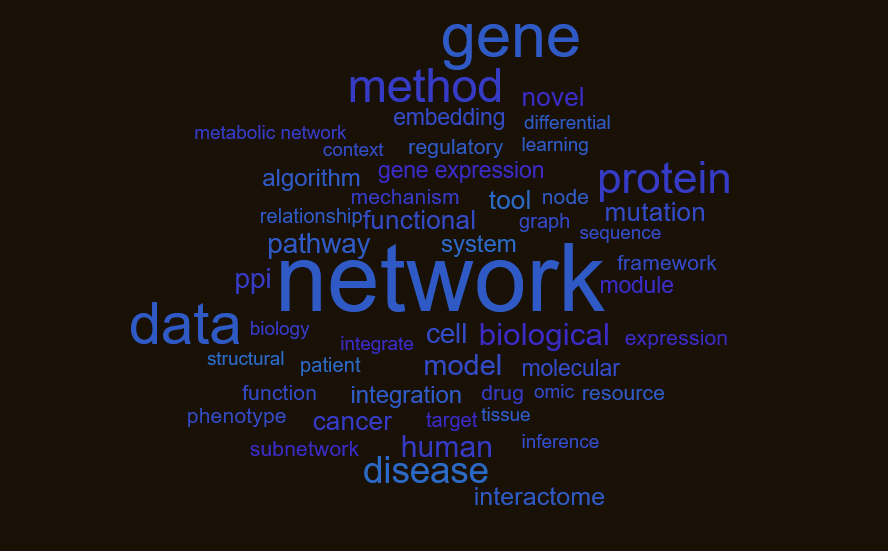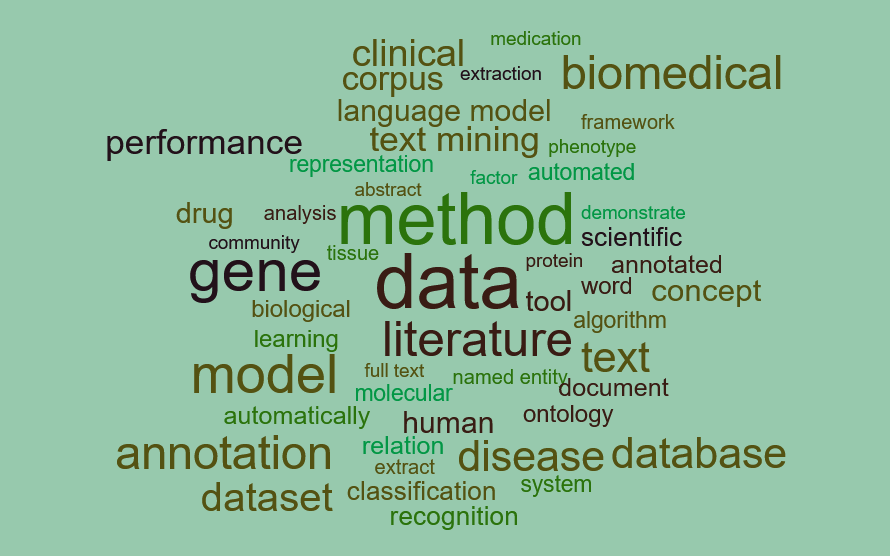Links within this page: Abstracts – Talks and Posters: About | Abstracts Talks and Posters: Deadlines | Tracks: COSIs & Open Sessions | Abstracts Talks and Posters: Submission Guidelines | Abstracts Talks and Posters: Review Criteria | Poster details for ISMB | FAQ
Abstracts – Talks and Posters
We invite abstracts for research that is topical to bioinformatics and computational biology, which is in progress (unpublished, formerly Late-Breaking Research) or previously published within the last 18 months (previously Highlights Track) for consideration for oral and/or poster presentation.
Your abstract should be submitted to the Communities of Special Interest (COSI) or Open Session Track that most accurately reflects the area of the work. (You will have the option to identify two other tracks that may also be suited to your research area during your submission). You can learn more about COSIs here.
Talks and posters are organized according to scientific topics which are covered by the COSIs and open sessions listed and described below. Please note, abstracts are not limited to COSI and open session topics and if the topic of your submission falls outside the listed COSIs you can choose the "General Computational Biology" area. Your abstract should convey a scientific result and should not be an advertisement for any commercial software package.
Multiple presentations: The same talk is not permitted to be given more than once as an oral presentation at ISMB. Research may be presented as both a talk and a poster if and only if it is submitted as two individual submissions with TWO different presenters. Having the same person deliver two (or more) different talks is NOT PERMITTED on the same topic. This allows for many people from one lab to present the work of the lab. A presenting author may present NO MORE THAN ONE talk or poster on the same topic.
For a variety of reasons, ISCB strongly prefers that scientific research accepted for oral presentation be presented in-person at the conference venue. We understand that some presenters will have valid reasons to avoid in-person attendance. ISCB will grant remote presentation options for reasons associated with maternity/paternity leave, care for a family member, personal/medical disability, sickness, financial hardship, or potential visa problems. If your research is accepted for oral presentation and you are unable to present in person, ISCB requires notification at the time of acceptance and no later than May 15, 2024. If unable to participate in person you will need to request a waiver by writing This email address is being protected from spambots. You need JavaScript enabled to view it.
Any pre-approved virtual presenters will be required to provide a pre-recorded talk for the virtual platform library in advance of the conference as a precaution due to possible technical issues.
Abstracts: Deadlines
Any recent research, published or unpublished is eligible for submission. Different submission types have different deadlines and notification dates. Be sure to check the below table or key dates page to find the dates relevant to your submission.
Poster only submissions DO NOT require any materials to be uploaded during submission. Submissions are evaluated on the 250 word text abstract provided during submission.
Tracks: Communities of Special Interest (COSIs) and Open Sessions
• 3DSIG • Bio-Ontologies • BIOINFO-CORE • Bioinformatics in Canada • BioVis • BOSC: Bioinformatics Open Source Conference • CAMDA • CompMS • Computational and Systems Immunology • Digital Agriculture • Education • Equity and Diversity in Computational Biology Research • EvolCompGen: Evolution and Comparative Genomics • Function • General Computational Biology • HitSeq • iRNA • MLCSB • MICROBIOME • NetBio • RegSys • SysMod • Text Mining • TransMed • VarI •
| 3DSIG: Structural Bioinformatics and Computational Biophysics Abstract Area Chairs: Rafael Najmanovich, Université de Montreal, Canada Douglas Pires, Exscientia, United Kingdom R. Gonzalo Parra, Barcelona Supercomputing Center |
 It is impossible to fully understand biological systems without understanding the 3D structure of their constituting parts and their interactions. As such the topics relevant for 3DSIG are wide and include, but are not restricted to Structure-based drug discovery including polypharmacology and network pharmacology; Structure representation, classification and prediction; It is impossible to fully understand biological systems without understanding the 3D structure of their constituting parts and their interactions. As such the topics relevant for 3DSIG are wide and include, but are not restricted to Structure-based drug discovery including polypharmacology and network pharmacology; Structure representation, classification and prediction;Structure-based function prediction; Docking, analysis, prediction and simulation of biomolecular interactions such as protein-protein, protein-ligand and protein-nucleic-acid; Protein dynamics and disorder; Evolution studied through structures; Application of structure to systems biology; Macromolecular assemblies; Structural genomics; 3D databases and data mining; Molecular visualization; Relevant methods of structure determination particularly hybrid methods; Prediction and analysis of protein domains; Membrane protein structure analysis and prediction; The structural basis of immunology.
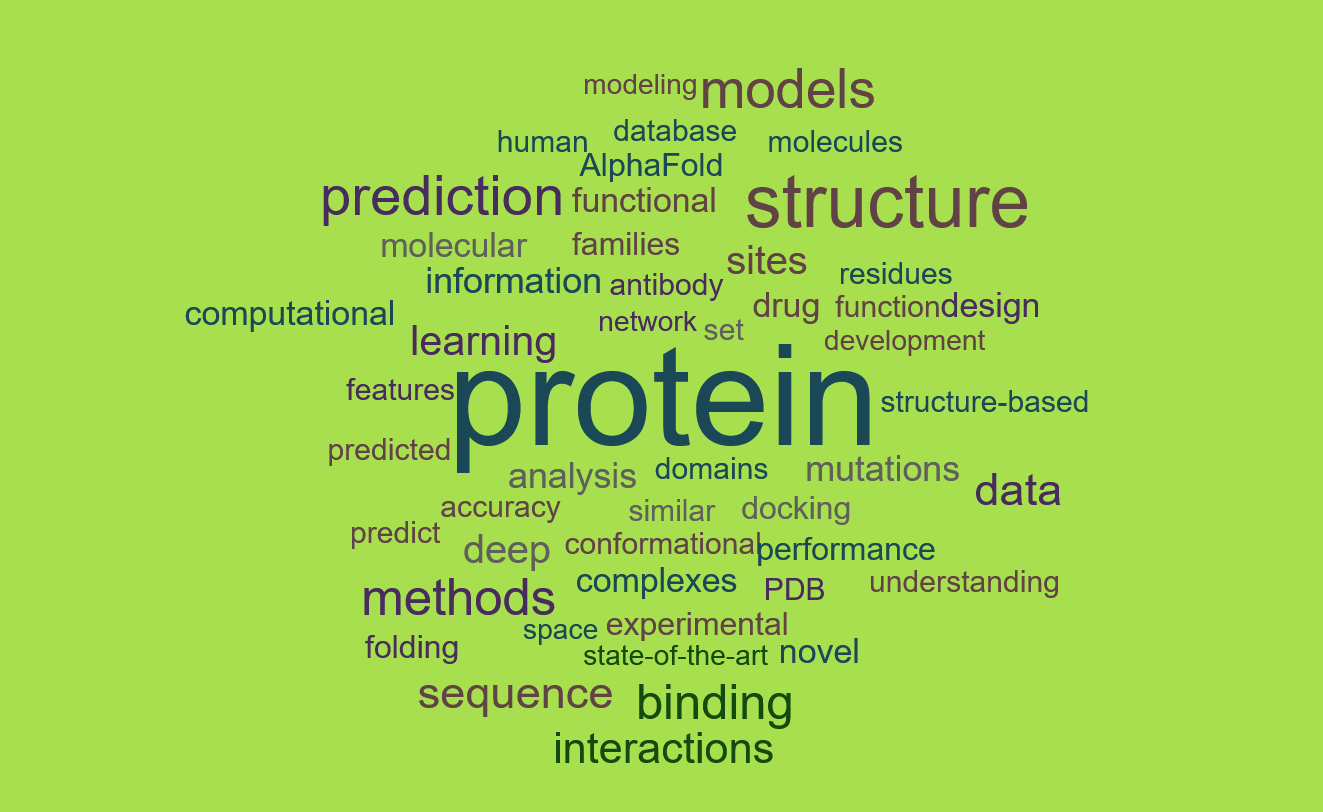 click to enlarge |
| Bio-Ontologies Abstract Area Chairs: Tiffany Callahan, Columbia University, United States Robert Hoehndorf, King Abdullah University of Science and Technology, Saudi Arabia Learn more about the Bio-Ontologies here |
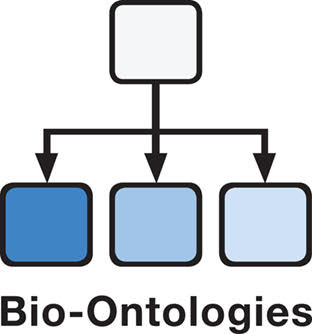 Bio-Ontologies Community of Special Interest Group (COSI) covers the Bio-Ontologies Community of Special Interest Group (COSI) covers thelatest and most innovative research in the application of ontologies, the organisation and dissemination of knowledge, and the development and application of knowledge-based methods in biomedicine and life sciences. Bio-Ontologies provides a vibrant environment for reporting novel methods and sharing experiences on the construction and application of ontologies in health care and the life sciences. The informal nature of the COSI offers a constructive environment to nurture discussion of innovative and scientifically sound work that range from preliminary to completed, from both young and experienced investigators alike. Bio-Ontologies participants also benefit from a strongly interdisciplinary setting, where ISMB attendees intermingle with members from American Medical Informatics Association (AMIA) and the W3C’s Healthcare and Life Sciences interest group (HCLSIG), thereby increasing impact through broader dissemination and enabling new and exceptional collaborations.
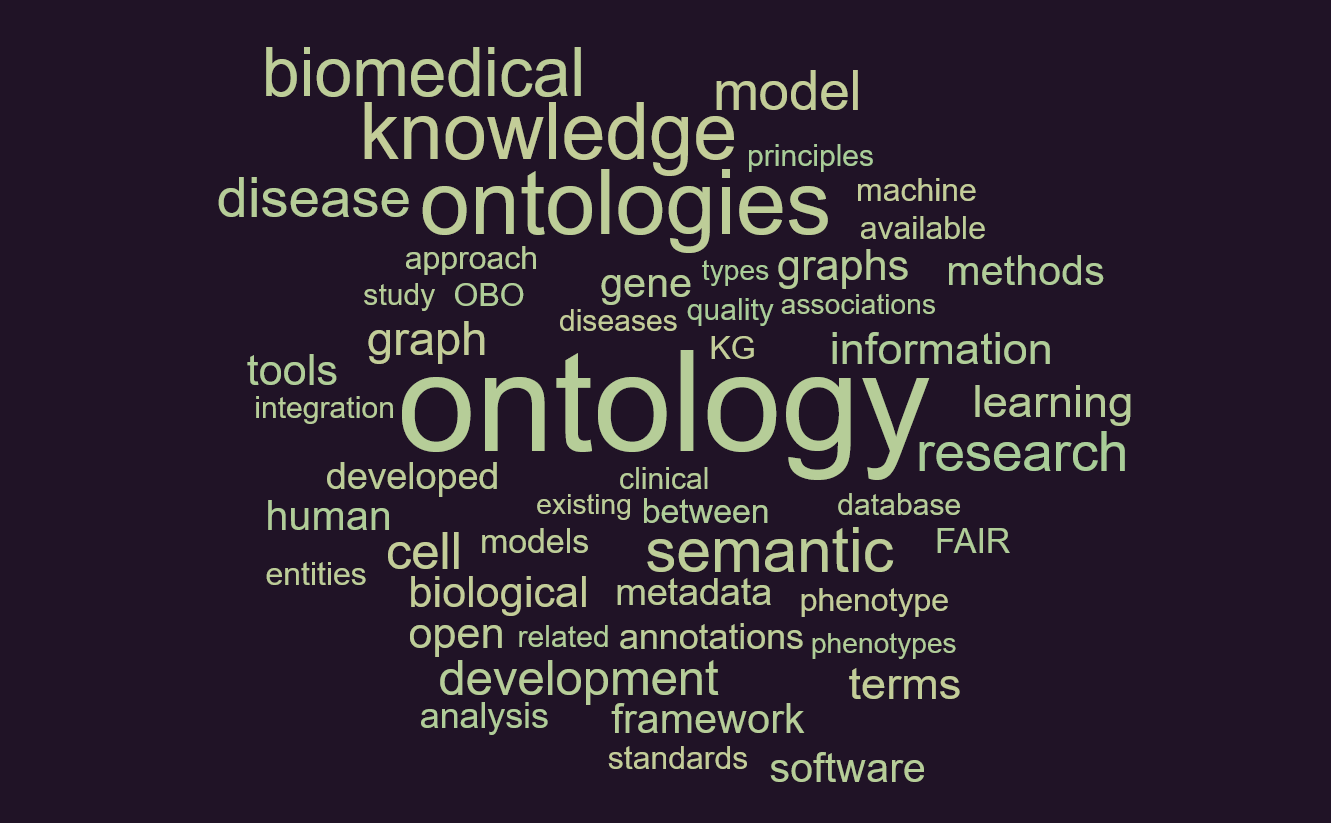 click to enlarge |
| BIOINFO-CORE Abstract Area Chairs: Madelaine Gogol, Stowers Institute, United States
Shannan Ho Sui, Harvard School of Public Health, United States
Alberto Riva, Human Technopole, Italy Learn more about Bioinfo-core here |
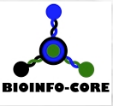 Bioinfo-core is a worldwide body of people that manage or staff bioinformatics cores within organizations of all types including academia, academic medical centers, medical schools, biotechs and pharmas. Bioinfo-core is a worldwide body of people that manage or staff bioinformatics cores within organizations of all types including academia, academic medical centers, medical schools, biotechs and pharmas.The major goal of this COSI is to offer a community to people who manage and staff bioinformatics cores around the world. Topics of interest to this group for our ISMB workshop include topics that core members would find interesting or useful. This includes but is not limited to: management topics relevant to cores, core formation and setup, workflow development, reproducibility, best practices, training, or exploring analysis of new types of data.
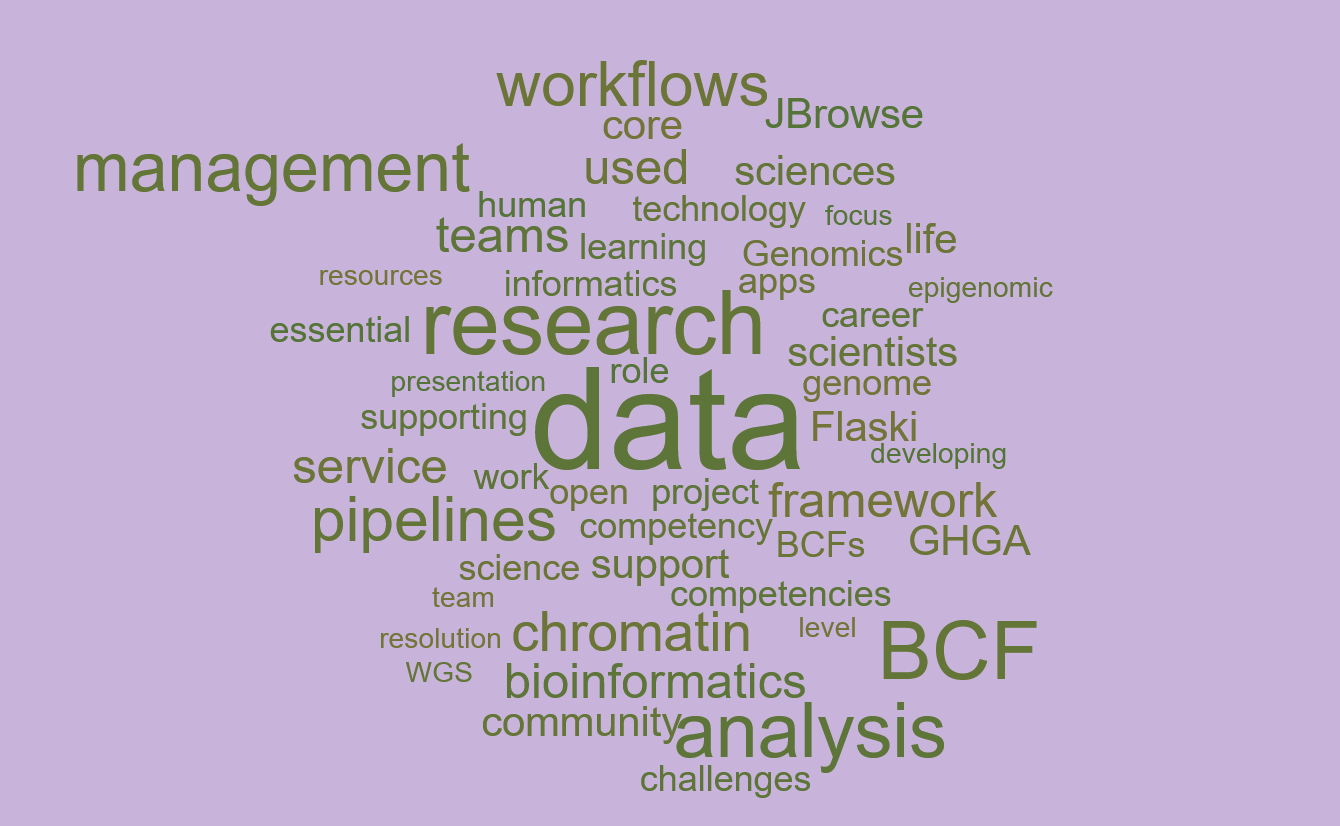 click to enlarge |
| Bioinformatics in Canada Abstract Area Chairs: Aïda Ouangraoua, University of Sherbrooke Francis Ouellette, Origin Bioinformatics |
Details coming soon |
| BioVis: Biological Data Visualization Abstract Area Chairs: Jan Byska, Masaryk University, Czech Republic
Qianwen Wang, Harvard Medical School, United States
Learn more about the BioVis COSI here |
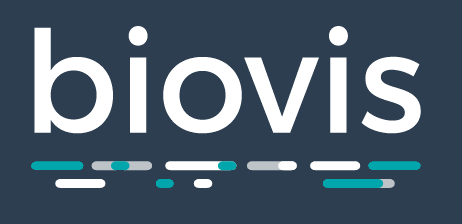 The BioVis track aims to educate, inspire, and engage bioinformatics and biology researchers in state-of-the-art visualization research and visualization researchers in problems in biological data visualization. The BioVis track aims to educate, inspire, and engage bioinformatics and biology researchers in state-of-the-art visualization research and visualization researchers in problems in biological data visualization.The rapid adoption of data-intensive biology approaches creates enormous challenges for computational visualization techniques, which are needed to enable researchers to gain insight from their large and highly complex data sets. The goal of this session is to bring together researchers from the visualization, bioinformatics, and biology communities with the purpose of educating, inspiring, and engaging bioinformatics and biology researchers in state-of-the-art visualization research, as well as visualization researchers in problems in biological data visualization.
Keywords: Visualisation, Visual Analytics, Education 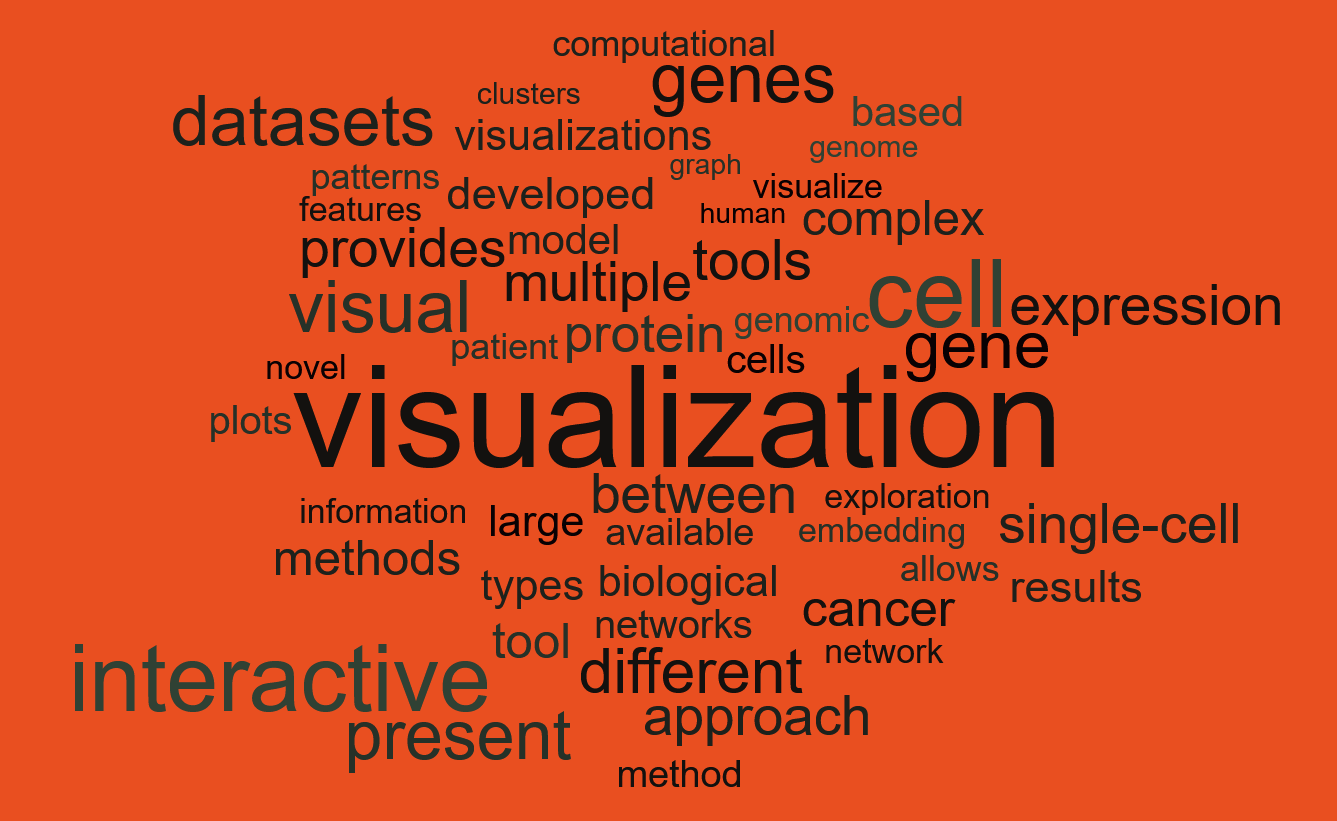 click to enlarge |
| BOSC: Bioinformatics Open Source Conference Abstract Area Chairs: Nomi L. Harris, Lawrence Berkeley National Laboratory, United States Karsten Hokamp, Trinity College Dublin, Ireland Deepak Unni, Swiss Institute of Bioinformatics, Switzerland Hervé Ménager, Institut Pasteur, France Jason Williams, Cold Spring Harbor Laboratory, United States Monica Munoz-Torres, University of Colorado Anschutz Medical Campus, United States Swapnil Sawant, Phoenix Bioinformatics, United States Learn more about BOSC here |
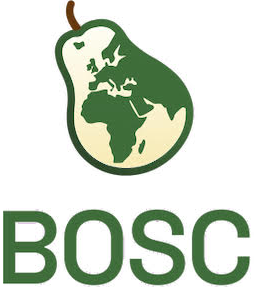 BOSC covers all aspects of open science / open source bioinformatics, including standards and ontologies; approaches that promote open science and sharing of data, results and software; bioinformatics tools and libraries; and ways to grow open source communities while promoting diversity within them. BOSC covers all aspects of open science / open source bioinformatics, including standards and ontologies; approaches that promote open science and sharing of data, results and software; bioinformatics tools and libraries; and ways to grow open source communities while promoting diversity within them.Launched in 2000 and held yearly since then, BOSC is organized by the Open Bioinformatics Foundation (OBF), a non-profit group dedicated to promoting the practice and philosophy of open source software development and open science within the biological research community.
Keywords: Open source; Open science; Open data; Reproducible research; Interoperability; Data science; Workflows; Translational bioinformatics; Diversifying bioinformatics communities You can learn more about the BOSC COSI here. 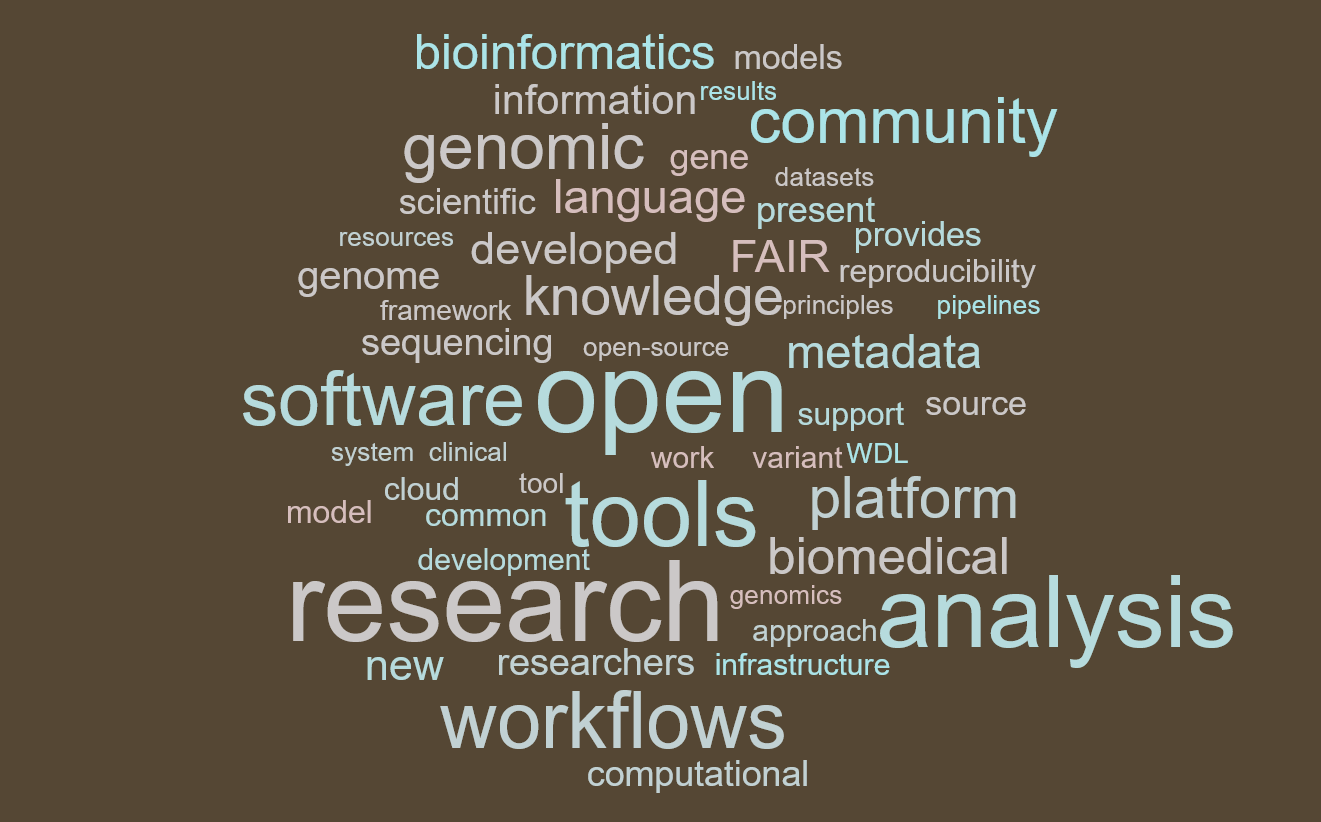 click to enlarge |
| CAMDA: Critical Assessment of Massive Data Analysis Abstract Area Chairs: Joaquin Dopazo, Fundación Progreso y Salud, Spain David Kreil, Boku University Vienna, Austria Paweł P Łabaj, Austrian Academy of Sciences, and Jagiellonian University, Poland Wenzhong Xiao, Harvard Medical School, United States (PLEASE note: CAMDA submitters should include a 3-5 page long abstract PDF) Learn more about the CAMDA COSI here. |
 The large, complex data sets for the Critical Assessment of Massive Data Analysis (CAMDA) contest include built-in truths for calibration. In an open-ended competition, however, both seasoned researchers and cunning students push the boundaries of our field, with unexpected questions or angles of approach often bringing the most impressive advances. The large, complex data sets for the Critical Assessment of Massive Data Analysis (CAMDA) contest include built-in truths for calibration. In an open-ended competition, however, both seasoned researchers and cunning students push the boundaries of our field, with unexpected questions or angles of approach often bringing the most impressive advances.The CAMDA track highlights and compares the latest methods and results in an international data analysis contest, with this year's topics including: (1) The Synthetic Clinical Health Records Challenge provides a rich set of highly realistic Electronic Health Records (EHR) tracing the diagnosis trajectories of diabetic patients, created with dual-adversarial auto-encoders trained on data from 1.2 million real patients in the Population Health Database of the Andalusian Ministry of Health. Predict relevant diabetes endpoints like blindness or cardiopathy from past diagnosis trajectories! (2) The Anti-Microbial Resistance Prediction Challenge features clinical isolates sequences. Predict resistance genes/markers and identify resistant bacteria! (3) The Gut Microbiome based Health Index Challenge features hundreds of WMS based taxonomic and functional profiles of healthy and unhealthy individuals. Take advantage of the Theater of Activity concept and compete already existing taxonomy based metrics!
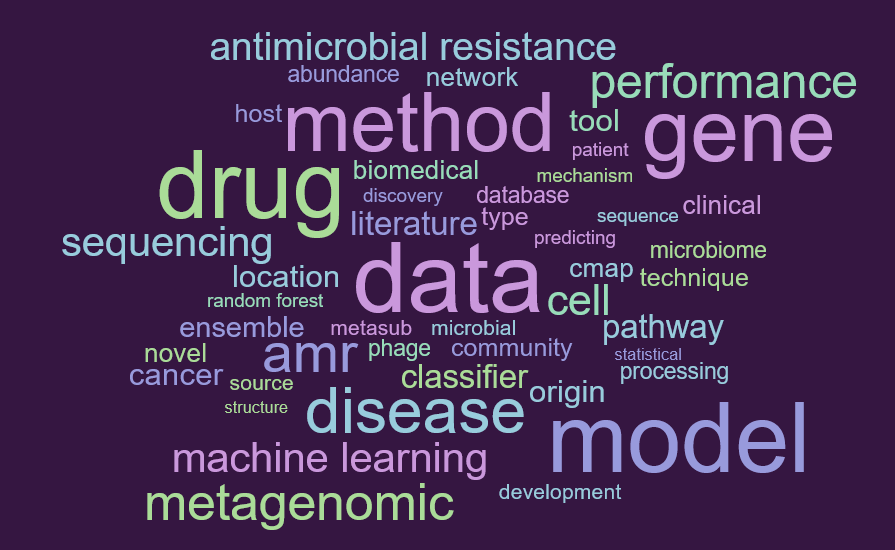 click to enlarge |
| CompMS: Computational Mass Spectrometry Abstract Area Chairs: Wout Bittremieux, University of Antwerp, Belgium Timo Sachsenberg, University of Tübingen, Germany Isabell Bludau, Max Planck Institute of Biochemistry, Germany Lindsay Pino, Talus Bio, United States Marie Brunet, Sherbrooke University, Canada Learn more about the CompMS COSI here. |
 The CompMS group promotes the efficient, high quality analysis of mass spectrometry data. The CompMS initiative covers various computational mass spectrometry application domains, including proteomics, metabolomics, and lipidomics. The CompMS group promotes the efficient, high quality analysis of mass spectrometry data. The CompMS initiative covers various computational mass spectrometry application domains, including proteomics, metabolomics, and lipidomics. |
| Computational and Systems Immunology Abstract Area Chair: Ferhat Ay, La Jolla Institute for Immunology, United States Jishnu Das, University of Pittsburgh School of Medicine, United States Hatice Ulku Osmanbeyoglu, University of Pittsburgh, United States Yuri Pritykin, Princeton University, United States |
"The Special Session on Computational Immunology invites abstract submissions for short talks and poster presentations encompassing various aspects of computational immunology. This includes the development of machine learning, network systems and immunogenomic approaches for analyzing multi-dimensional/multi-omic data. Data-driven computational studies addressing fundamental or translational questions in immunology are also of interest. Potential topics may cover, but are not limited to:
|
| Digital Agriculture Abstract Area Chair: Rodrigo Ortega Polo, Agriculture and Agri-food Canada, Canada |
The Special Session on Digital Agriculture invites abstracts for research that is topical to the field of digital agriculture, from basic to applied sciences and including intersections with other fields. As such topics relevant for this Special Session include, but are not restricted to, genetics and genomics of agriculturally relevant species; plant and animal phenomics; AI/machine learning; image analysis; remote sensing; educational innovations; discoveries resulting from public-private partnerships; data sharing and FAIR data standards; biotechnology; and soil sciences.
|
| Education: Computational Biology Education Abstract Area Chair: Russell Schwartz, Carnegie Mellon University, United States Patricia M. Palagi, SIB Swiss Institute of Bioinformatics, Switzerland Wai Keat Yam, International Medical University, Malaysia Learn more about the Education COSI here. |
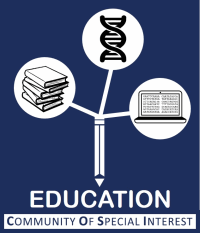 Education-COSI focuses on bioinformatics and computational biology education and training across the life sciences. Education-COSI focuses on bioinformatics and computational biology education and training across the life sciences.A major goal of this COSI is to foster a mutually supportive, collaborative community in which bioscientists can share bioinformatics education and training resources and experiences, and facilitate the development of education programs, courses, curricula, etc., and teaching tools and methods.
Keywords: education, training, training resources, curricula, competencies 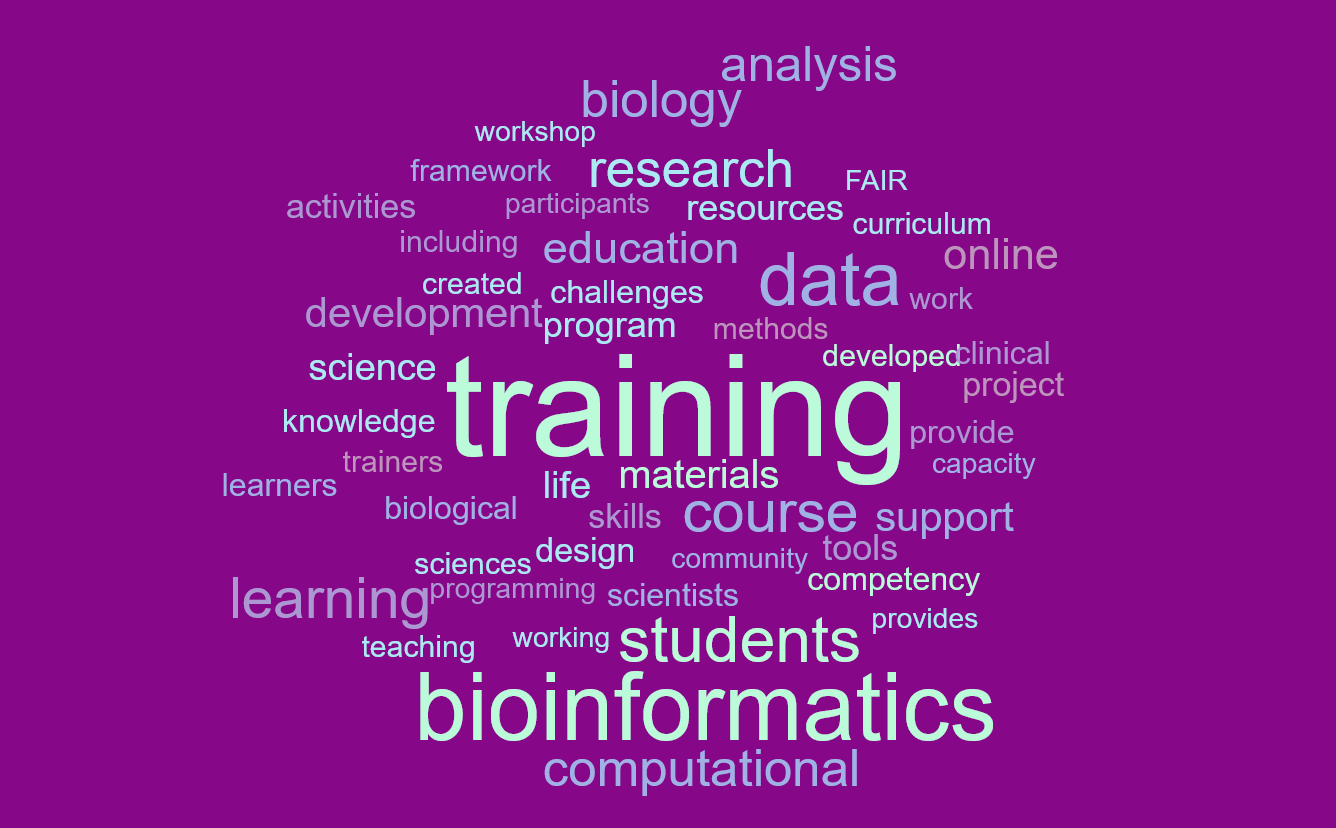 click to enlarge |
| Equity and Diversity in Computational Biology Research Abstract Area Chairs: Casey Greene, University of Colorado’s Anschutz Medical Campus, United States
Alejandra Medina Rivera, Universidad Nacional Autonoma de Mexico, Mexico |
This area is for research that examines issues of equity, representation, diversity, or other elements related to datasets, methods, or the field of computational biology at large. |
| EvolCompGen: Evolution and Comparative Genomics Abstract Area Chairs: Nadia El-Mabrouk, University of Montreal, Canada Janani Ravi, University of Colorado Anschutz Medical Campus, United States Learn more about the EvolCompGen COSI here |
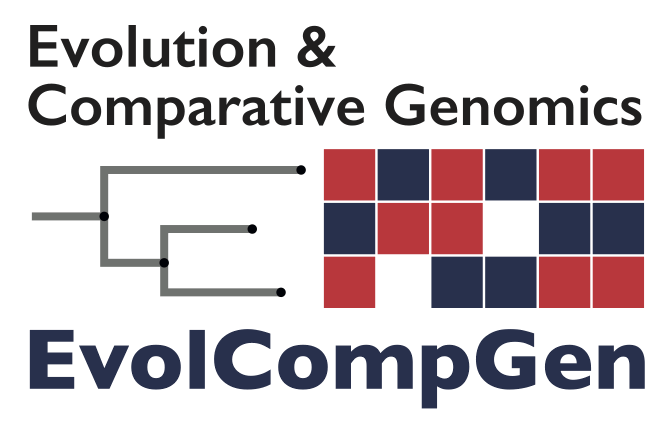 Evolution and comparative genomics are deeply intertwined with computational biology. Computational evolutionary methods, such as phylogenetic inference methods or multiple sequence alignment are widely used, yet remain far from “solved” and are indeed intense areas of research. Evolution and comparative genomics are deeply intertwined with computational biology. Computational evolutionary methods, such as phylogenetic inference methods or multiple sequence alignment are widely used, yet remain far from “solved” and are indeed intense areas of research.At the same time, evolutionary and comparative genomics are inherently “transversal” disciplines in that work in many other biological areas of research have some evolutionary component (e.g. cancer genomics, epidemiology, toxicology, population genetics, functional genomics, structural biology just to name a few). The scope of this COSI is intentionally kept broad. The track will feature a mix of proceedings, highlight, and invited talks. Priority will be given to contributions which are relevant to more than a single area of application, or to contributions which are not covered by more specialised COSIs.
Keywords: Evolution, phylogeny, phylogenomics, comparative genomics, genome rearrangements, orthology, paralogy, recombination, lateral gene transfer, genome variation, population genomics, comparative epigenomics, epidemiology, cancer evolution genomics, genome annotation 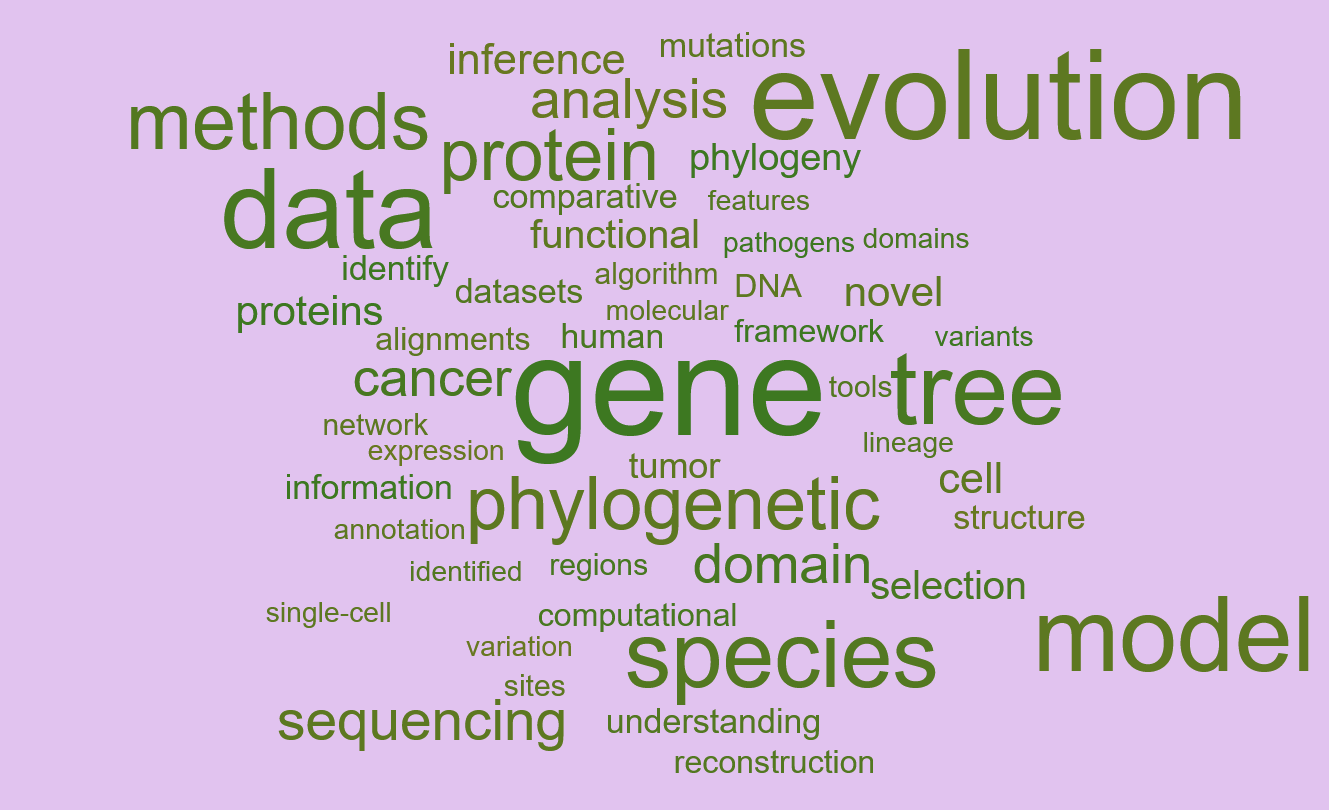 click to enlarge |
| Function: Gene and Protein Function Annotation Abstract Area Chairs: Iddo Friedberg, Iowa State University, United States Mark Wass, University of Kent, United Kingdom Ana M Rojas Mendoza, Centro Andaluz de Biologia del Desarrollo, Spain Dukka KC, Michigan Technological University, United States Learn more about the Function COSI here |
 The mission of the Function Community of Special Interest (Function-COSI) is to bring together computational biologists, experimental biologists, biocurators, and others who are dealing with the important problem of gene and gene product function prediction, to share ideas and create collaborations. The mission of the Function Community of Special Interest (Function-COSI) is to bring together computational biologists, experimental biologists, biocurators, and others who are dealing with the important problem of gene and gene product function prediction, to share ideas and create collaborations.The Function COSI features the Critical Assessment of Function Annotation, an ongoing community challenge aimed at improving methods for protein function prediction. The Function-COSI holds annual meetings alongside ISMB. Also, we are conducting the multi-year Critical Assessment of protein Function Annotation, or CAFA, experiment.
Keywords: Protein function prediction, machine learning, performance assessment 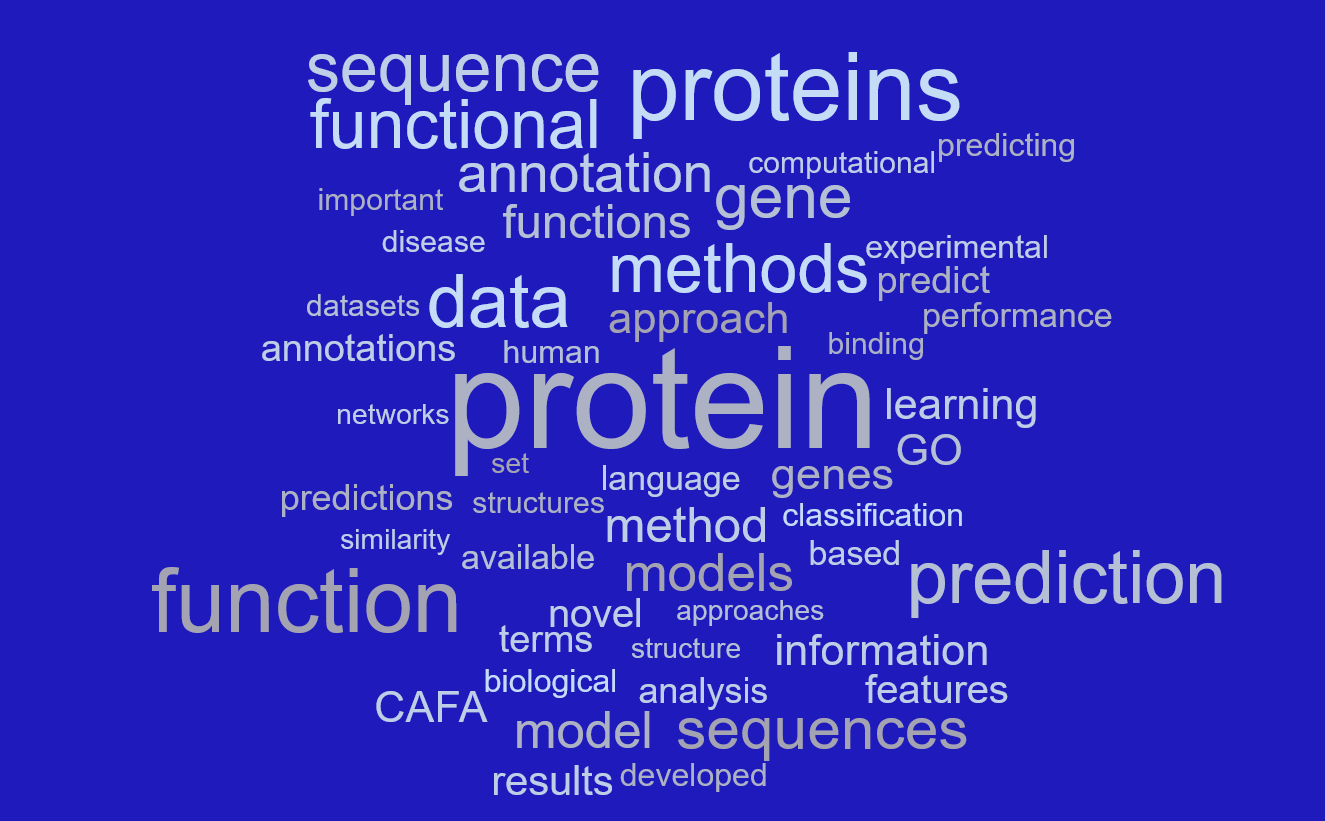 click to enlarge |
| General Computational Biology Abstract Area Chairs: Gary Bader, University of Toronto, Canada Iman Hajirasouliha, Cornell University, United States (If all other areas are insufficiently descriptive of your work, please submit to the area below. Please note that the submissions in this area can be moved, subject to chairs’ considerations.) |
Novel techniques in emerging areas of computational biology, including intersections with other fields. |
| HitSeq: High-throughput Sequencing Abstract Area Chairs: Can Alkan, Bilkent University,Turkey Ana Conesa, Spanish National Research Council, Spain; and University of Florida, Gainesville, United States Francisco M. De La Vega, Stanford University; and Tempus Genomics, United States Dirk Evers, Dr. Dirk Evers Consulting, Germany Kjong Lehmann, Centre of Medical Technology, Germany Christina Boucher, University of Florida, Gainesville, United States Learn more about the HiTSeq COSI here |
 HiTSeq is a community of special interest devoted to the latest advances in computational techniques for the analysis of high-throughput sequencing (HTS) data. Sessions will be devoted to discussing the latest advances in computational techniques for the analysis of high-throughput sequencing (HTS) datasets and will provide a forum for in-depth presentations of the methods and discussions among the academic and industry scientists working in this field. HiTSeq is a community of special interest devoted to the latest advances in computational techniques for the analysis of high-throughput sequencing (HTS) data. Sessions will be devoted to discussing the latest advances in computational techniques for the analysis of high-throughput sequencing (HTS) datasets and will provide a forum for in-depth presentations of the methods and discussions among the academic and industry scientists working in this field.We seek contributions on any topic involving HTS data analysis including: genome assembly and haplotype phasing; transcriptome analysis; genetics and epigenetics variation; metagenomics and microbiome analysis; and new HTS platform data analysis (e.g. synthetic reads, long reads, nanopore). In addition to general sessions, we propose to have two specialized sessions to focus on current hot topics: a) long sequencing and mapping techniques, b) single cell sequencing applications, c) non-linear genome representations. Both of these topics have generated an enormous amount of interest recently.
Keywords: sequencing, next generation, high throughput, algorithms, assembly, phasing, variation discovery, genotyping, metagenomics, microbiome, long reads, short reads, nanopre, pan-genomes, graph genomes 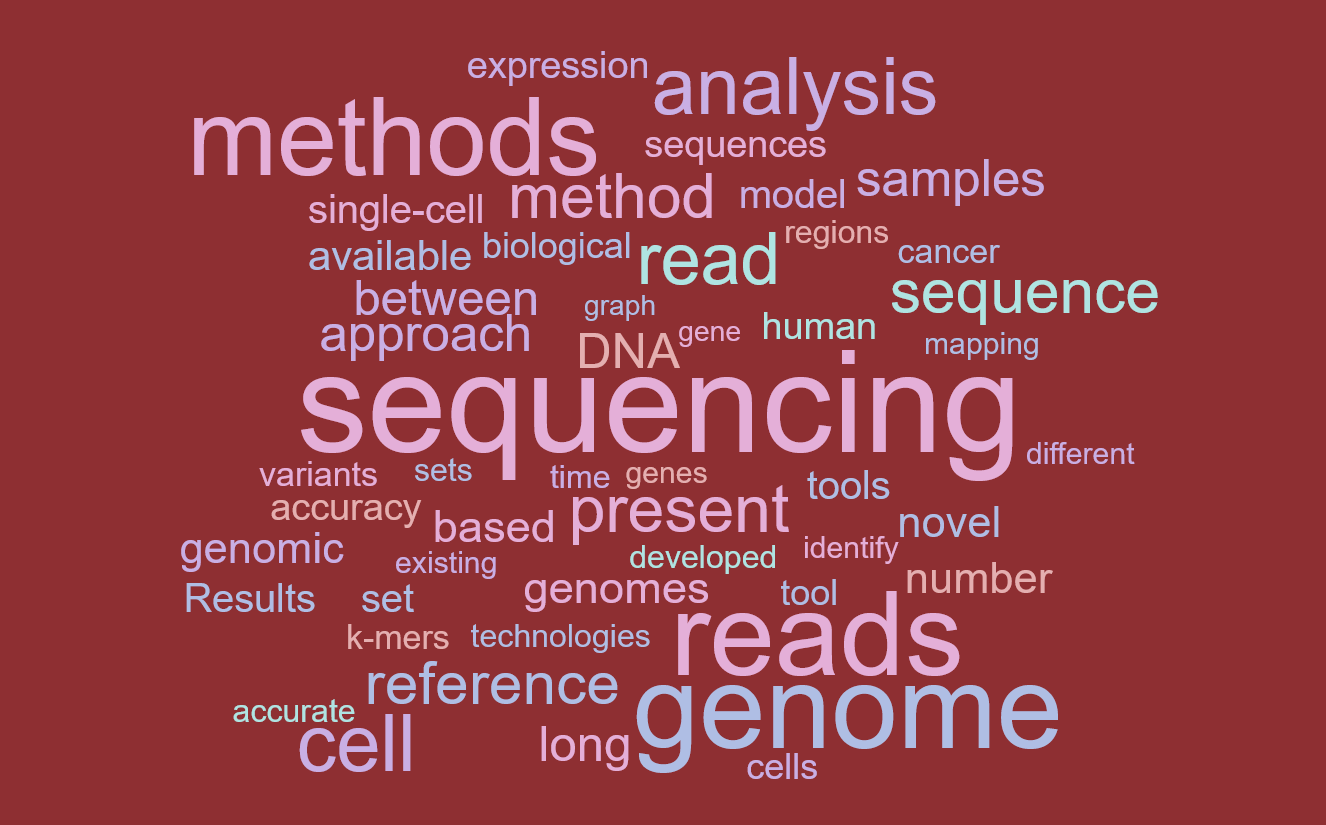 click to enlarge |
| iRNA: Integrative RNA Biology Abstract Area Chairs: Michelle Scott, University of Sherbrooke, Canada Athma Pai, University of Massachusetts Medical School, United States Hagen Tilgner, Weill Cornell Medicine, United States Maayan Salton, Hebrew University of Jerusalem in Israel, Israel Learn more about the iRNA COSI here |
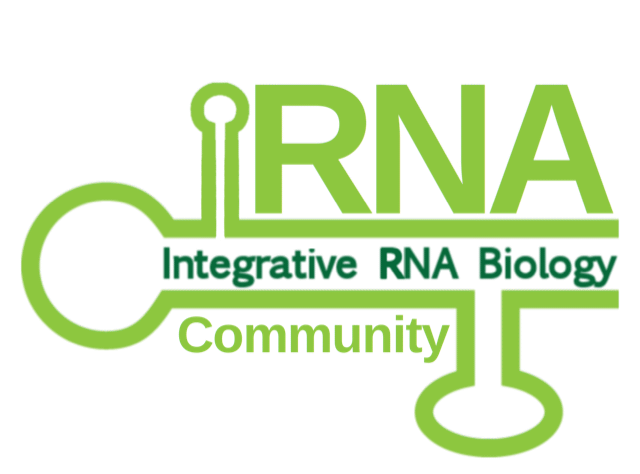 iRNA track covers the full range of research topics in the field of RNA Biology, from computational and high-throughput experimental methods development to their application in different aspects of RNA processing, structure, and function. iRNA track covers the full range of research topics in the field of RNA Biology, from computational and high-throughput experimental methods development to their application in different aspects of RNA processing, structure, and function.The goal of the Integrative RNA Biology session is to bring together experts in computational and experimental aspects of research in RNA Biology to cover new developments across this broad field of research. The meeting focuses on two major areas: (1) the development of computational and high-throughput experimental methods, and (2) the application of such methods to break new grounds in the study of RNA biology and disease. We aim to educate and inspire researchers in the field, novice and seasoned alike, by meshing together different aspects of Computational RNA Biology, and promoting cross-disciplinary collaborative research.
Keywords: Transcriptomics, RNA processing, post-transcriptional regulation, non-coding RNA, RNA 2D/3D structure, alternative-splicing, alternative polyadenylation, RNA translation degragation and localization, genetic variants effect on RNA processing, RNA and disease. 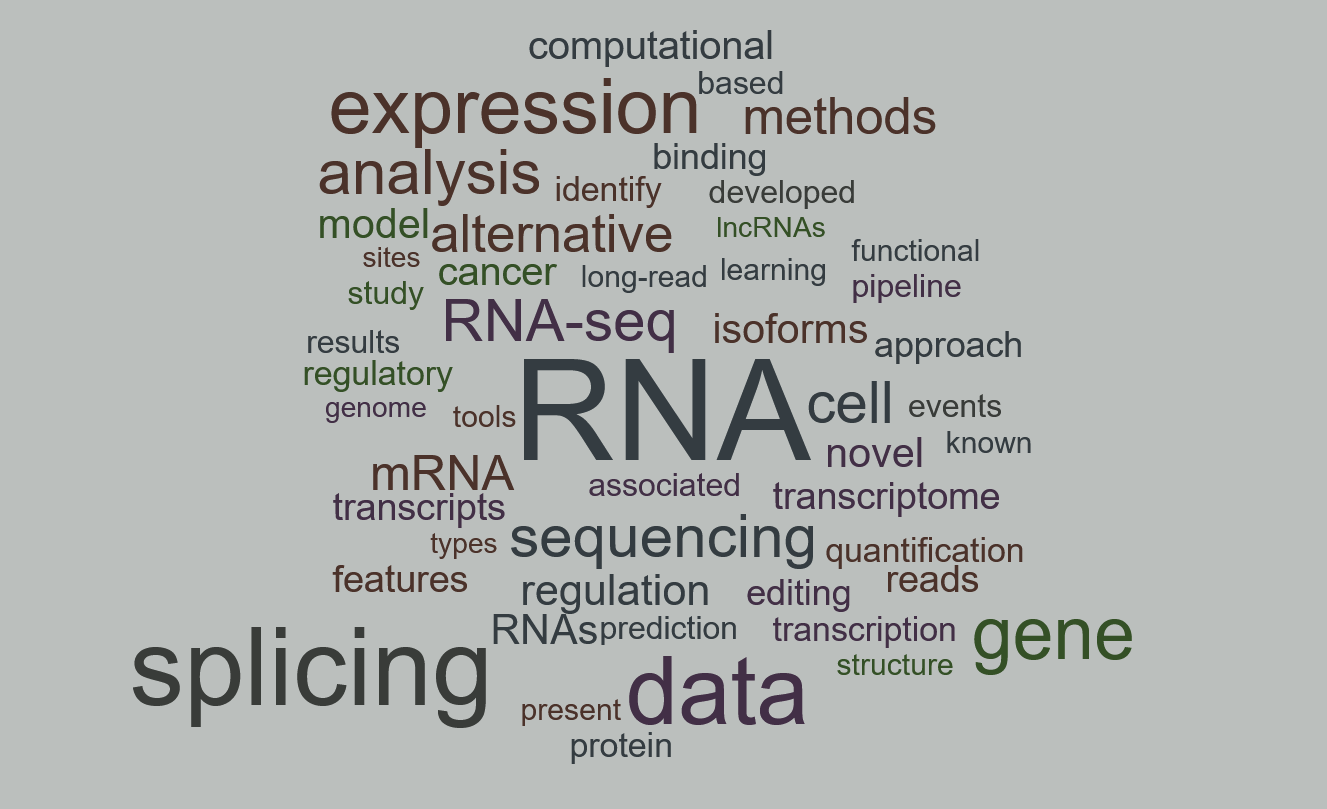 click to enlarge |
| MICROBIOME Abstract Area Chair: Alice McHardy, Helmholtz Centre for Infection Research, Germany Alexander Sczyrba, University of Bielefeld, Germany Learn more about the MICROBIOME COSI here |
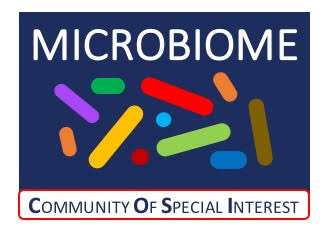 The MICROBIOME Community of Special Interest aims at the advancement and evaluation of computational methods in microbiome research, especially metaomic approaches. Based on the Critical Assessment of Metagenome Interpretation (CAMI), the COSI supplies users and developers with exhaustive quantitative data about the performance of methods in relevant scenarios. The MICROBIOME Community of Special Interest aims at the advancement and evaluation of computational methods in microbiome research, especially metaomic approaches. Based on the Critical Assessment of Metagenome Interpretation (CAMI), the COSI supplies users and developers with exhaustive quantitative data about the performance of methods in relevant scenarios.It therefore guides users in the selection and application of methods and in their proper interpretation. Furthermore, the COSI provides a platform for exchange and networking between method developers, and provides valuable information allowing them to identify promising directions for their future work.
Keywords: microbiome, computational metaomics, microbial networks, pathogens, symbionts, (meta)omics-based diagnostics, microbial ecology and evolution
The MICROBIOME Community of Special Interest aims at the advancement and evaluation of computational methods in microbiome research, especially metaomic approaches. Keywords: microbiome, genome reconstruction, metagenomics, metatranscriptomics, metaproteomics, microbial networks, microbial traits, symbionts, pathogens, genome-based diagnostics 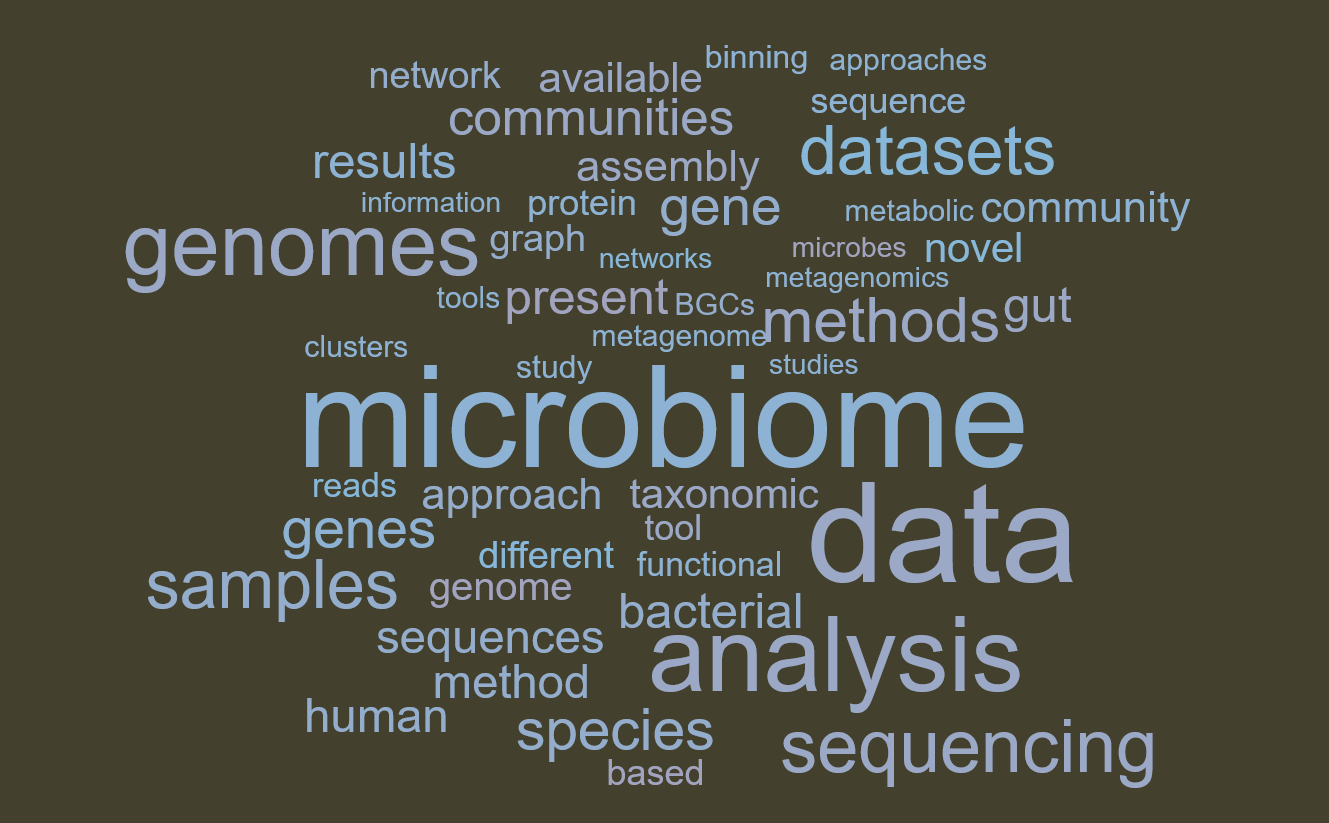 click to enlarge |
| MLCSB: Machine Learning in Computational and Systems Biology Abstract Area Chairs: Yvan Saeys, Ghent University, Belgium Maria Brbic, EPFL, Switzerland Learn more about the MLCSB COSI here |
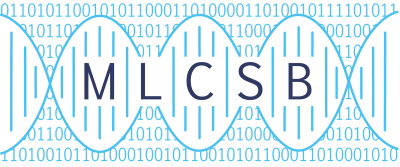 Systems Biology and Machine Learning meet in the MLCSB COSI. The community is the place for researchers of these areas to exchange ideas, interact and collaborate. Systems Biology and Machine Learning meet in the MLCSB COSI. The community is the place for researchers of these areas to exchange ideas, interact and collaborate.Molecular biology and all the biomedical sciences are undergoing a true revolution as a result of the emergence and growing impact of a series of new disciplines and tools sharing the -omics suffix in their name. These include in particular genomics, transcriptomics, proteomics and metabolomics, devoted respectively to the examination of the entire systems of genes, transcripts, proteins and metabolites present in a given cell or tissue type. Taking advantage of this wealth of genomic information has become a conditio sine qua non for whoever has the ambition to remain competitive in molecular biology and in the biomedical sciences in general. Machine learning naturally appears as one of the main drivers of progress in this context, where most of the targets of interest deal with complex structured objects: sequences, 2D and 3D structures or interaction networks. At the same time, bioinformatics and systems biology have already induced significant new developments of general interest in machine learning, for example in the context of learning with structured data, graph inference, semi-supervised learning, system identification, and novel combinations of optimization and learning algorithms.
Keywords: Machine Learning, Data Mining, Deep Learning, Artificial Intelligence in Bioinformatics and Computational Biology 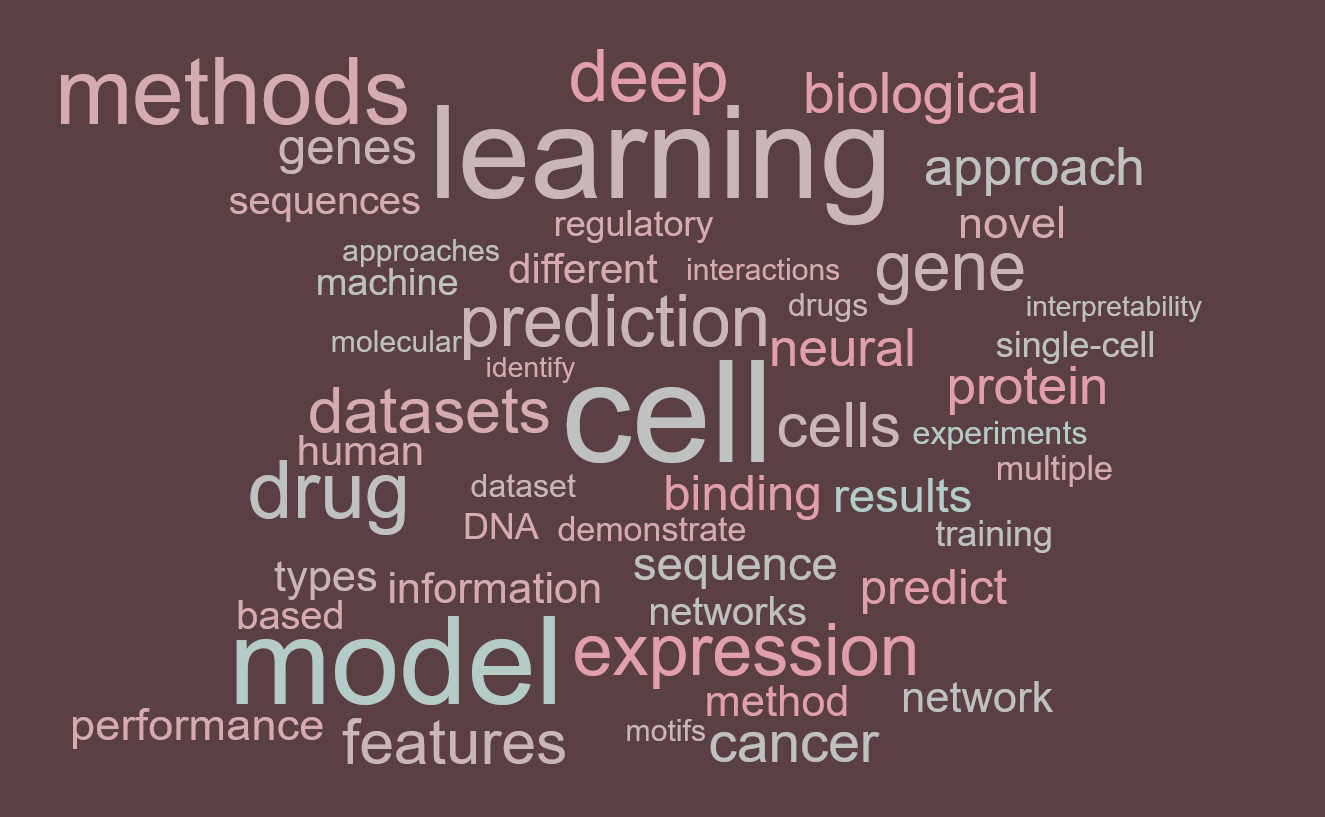 click to enlarge |
| NetBio: Network Biology Abstract Area Chair: Deisy Morselli Gysi, Federal University of Parana, Brazil Scooter Morris, University of California, San Francisco, United States Martina Summer-Kutmon, Maastricht University, Netherlands Learn more about the NetBio COSI here |
 As large scale, systems-level data are becoming increasingly available, modeling and analyzing them as networks is widespread. Network Biology Community serves to introduce novel methods and tools, identify best practices and highlight the latest research in the growing and interdisciplinary field of network biology. As large scale, systems-level data are becoming increasingly available, modeling and analyzing them as networks is widespread. Network Biology Community serves to introduce novel methods and tools, identify best practices and highlight the latest research in the growing and interdisciplinary field of network biology. |
| RegSys: Regulatory and Systems Genomics Abstract Area Chairs: Shaun Mahony, Penn State University, United States Anthony Mathelier, University of Oslo, Norway Lonnie Welch, Ohio University, United States Alejandra Medina-Rivera, National Autonomous University of Mexico Learn more about the RegSys COSI here |
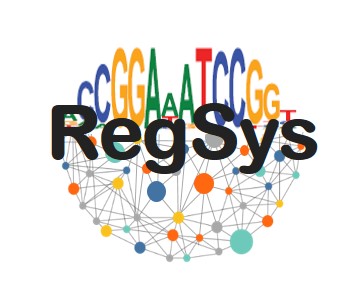 Regulatory genomics involves the study of the genomic control system, which determines how, when and where to activate the blueprint encoded in the genome. Regulatory genomics is the topic of much research activity worldwide. Since computational methods are important in the study of gene regulation, the RegSys COSI meeting focuses on bioinformatics for regulatory genomics. Regulatory genomics involves the study of the genomic control system, which determines how, when and where to activate the blueprint encoded in the genome. Regulatory genomics is the topic of much research activity worldwide. Since computational methods are important in the study of gene regulation, the RegSys COSI meeting focuses on bioinformatics for regulatory genomics.An important goal of the meeting is to foster a collaborative community wherein scientists convene to solve difficult research problems in all areas of computational regulatory genomics.
Keywords: 1. Genomic and epigenomic regulatory elements (transcription factors, enhancers, histones, gene promoters, regulatory motifs, non-coding RNAs, etc.) 2. NGS methods in regulatory genomics (e.g., ChIP-seq, RNA-seq, ATAC-seq) 3. Epigenetics and epitranscriptomics 4. Alternative splicing 5. Regulatory networks and pathway analysis 6. Genetic, molecular, and phenotypic variation in human disease 7. DNA shape 8. Single-cell transcriptomics (and other single cell assays) 9. 3D genomics (e.g., Hi-C and ChIA-PET) 10. Regulatory evolution or comparative regulatory genomics 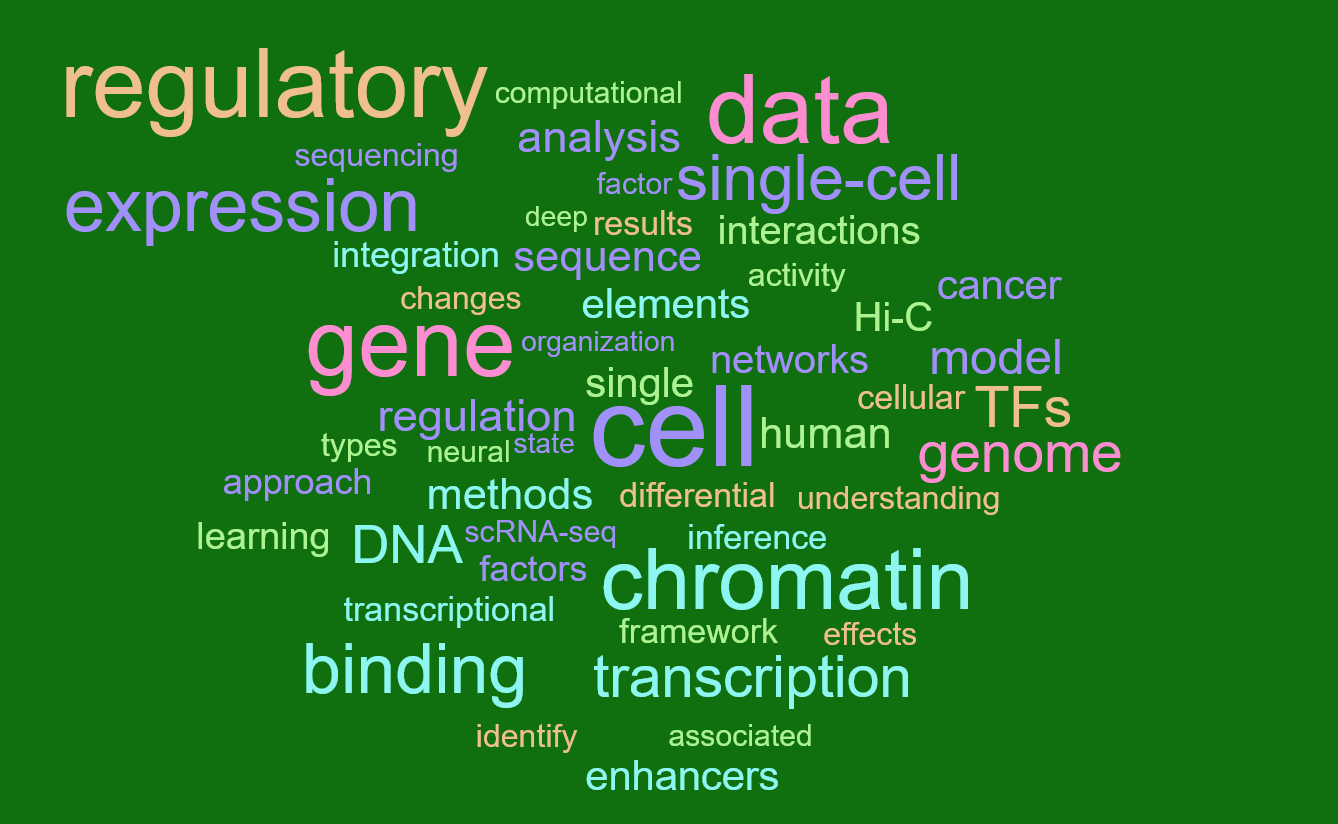 click to enlarge |
| SysMod: Computational Modeling of Biological Systems Abstract Area Chairs: Shaimaa Bakr, Stanford University, United States
Matteo Barberis, University of Surrey, United Kingdom
Chiara Damiani, Università degli Studi di Milano-Bicocca, Italy
Reihaneh Mostolizadeh, Eberhard Karl University of Tübingen, Germany
Bhanwar Puniya, University of Nebraska–Lincoln, United States
Meghna Verma, AstraZeneca, United States
Learn more about the SysMod COSI here |
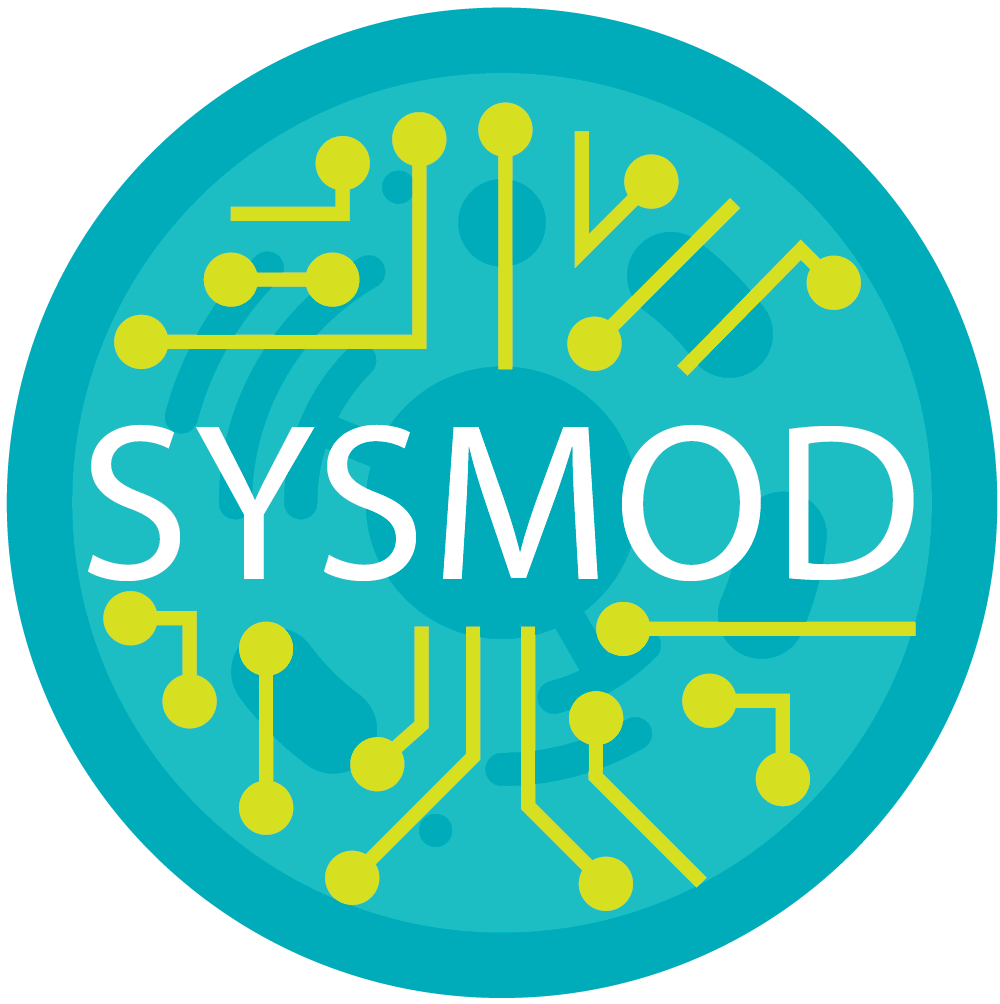 The Computational Modeling of Biological Systems (SysMod) aims to create a forum for systems modelers and bioinformaticians to discuss common research questions and methods. The session will focus on the conjoint use of mathematical modeling and bioinformatics to understand biological systems functions and dysfunctions. The Computational Modeling of Biological Systems (SysMod) aims to create a forum for systems modelers and bioinformaticians to discuss common research questions and methods. The session will focus on the conjoint use of mathematical modeling and bioinformatics to understand biological systems functions and dysfunctions.The meeting is open to the full range of methods used in systems modeling, including qualitative and quantitative modeling, dynamical and steady-state modeling, as well all applications of systems modeling including basic science, bioengineering, and medicine.
Keywords: computational modeling, constraint-based models, logical models, kinetic models, multi-scale models 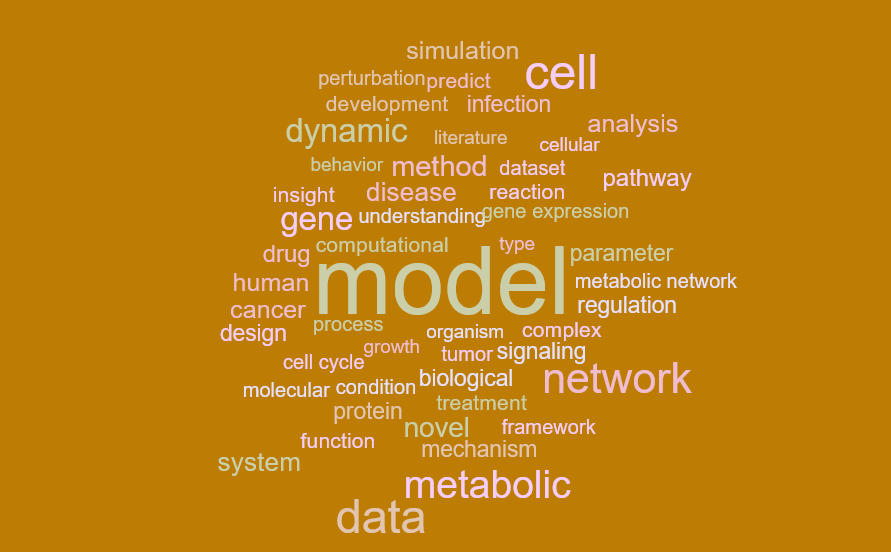 click to enlarge |
| Text Mining: Text Mining for Healthcare and Biology Abstract Area Chairs: Robert Leaman, NCBI/NLM/NIH, United States Lars Juhl Jensen, University of Copenhagen, Denmark Zhiyong Lu, NCBI/NLM/NIH, United States Learn more about the Text Mining COSI here |
 The Text Mining COSI brings together researchers that create text mining tools with researchers who use text mining tools to make new discoveries. Our community discussions include both text mining use cases - concrete problems and applications in the biological/biomedical domain - and methodology development. The Text Mining COSI brings together researchers that create text mining tools with researchers who use text mining tools to make new discoveries. Our community discussions include both text mining use cases - concrete problems and applications in the biological/biomedical domain - and methodology development. |
| TransMed: Translational Medical Informatics Abstract Area Chairs: Irina Balaur, University of Luxembourg, Luxerbourgh
Learn more about the TransMed COSI here. |
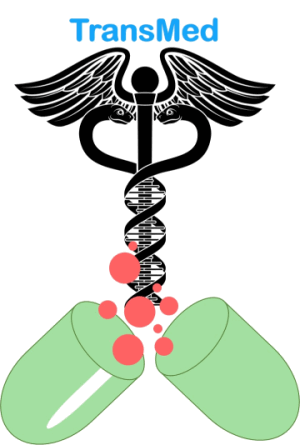 TransMed covers the current developments in the field of clinical and translational medicine informatics. Analysis of large amounts of multi-omics, imaging (medical and molecular), mobile sensor, clinical and health records data is paving the way for precision medicine. In the TransMed track, we will explore the current status of computational biology and advance machine learning approaches within the field of clinical and translational medicine. TransMed covers the current developments in the field of clinical and translational medicine informatics. Analysis of large amounts of multi-omics, imaging (medical and molecular), mobile sensor, clinical and health records data is paving the way for precision medicine. In the TransMed track, we will explore the current status of computational biology and advance machine learning approaches within the field of clinical and translational medicine.This opens the debate on current state-of-the-art data infrastructures for translational medicine data integration and analysis. A variety of computational approaches are currently being used to harmonize and relate molecular data to clinical outcomes in order to better understand disease conditions. These methods also have the potential to discover biomarkers for early detection of disease, and targets for drug discovery, and to be used predictively to help to suggest personalised therapeutic strategies for patients. In this session we will bring scientists from both academia and industry to exchange knowledge and foster networking, to help in building up of the translational medicine community. .
Keywords: Translational medicine; clinical and ‘omics data integration; curation and harmonization; stratification of patients; informatics for integrating biology and the bedside; medical informatics; ontology-driven data representation; patient centered outcomes research; cohort data; deep learning 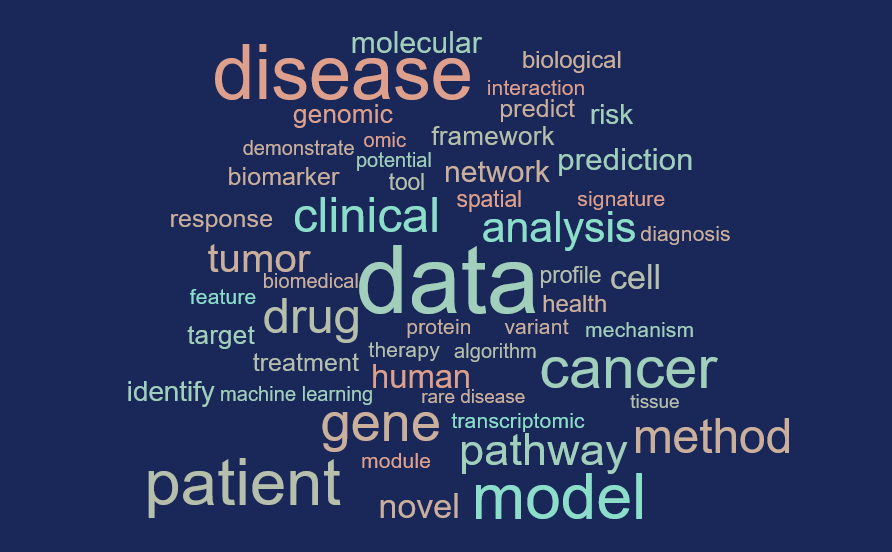 click to enlarge |
| VarI: Variant Interpretation Abstract Area Chairs: Emidio Capriotti, University of Bologna, Italy
Hannah Carter, University of California, San Diego, United States
Antonio Rausell, Imagine Institute for Genetic Diseases, France
Learn more about the VarI COSI here |
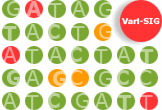 The VarI COSI meeting is dedicated to the recent advances in the analysis and interpretation of the genetic variants. The VarI COSI meeting is dedicated to the recent advances in the analysis and interpretation of the genetic variants.The meeting aims to organize a research network (VarI-COSI) facilitating the exchange of ideas and the establishment of new collaborations between researchers with different expertise. The VarI-COSI meeting is broadly divided in two sessions (“Genetic variants as markers: evolution, populations, GWAS” and “Genetic variants as effectors: function, structure, and regulation”) that encompass the four major research topics of the field: 1) Databases, data mining algorithms and visualization tools for variants analysis. 2) Methods for predicting regulatory/structural/functional impacts of SNVs. 3) Personal Genomics, GWAS studies and SNV prioritization. 4) Population genomics and phylogenetic analysis.
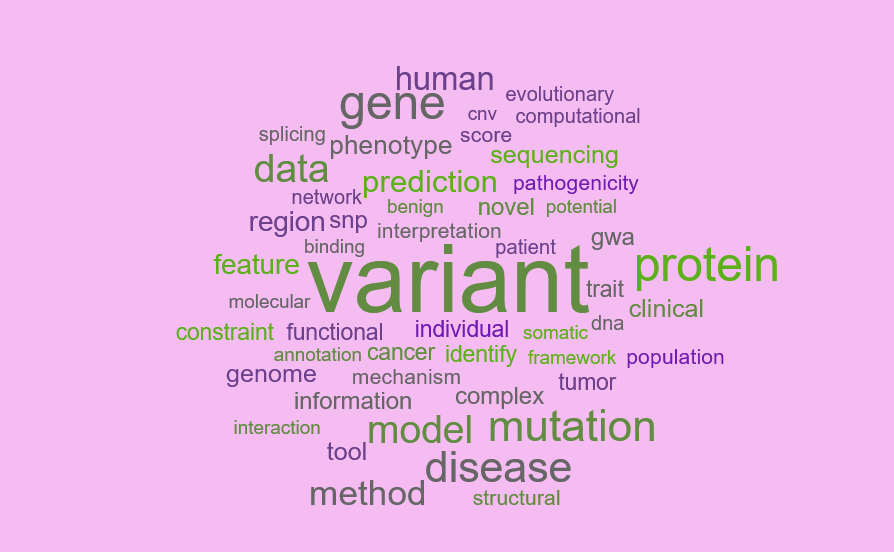 click to enlarge |
Abstracts: Submission Guidelines
All submission MUST select a presenting author. The presenting author MUST be marked as a corresponding author. Presenters of accepted abstracts are required to make the presentation themselves, and must register and pay to attend the conference. Submitters may choose to have their submission reviewed for: talk or poster or poster only. If you select talk or poster and are unsuccessful for a talk your abstract will automatically be considered for a poster presentation. Submission deadlines are posted in the deadlines section or key dates page.
During the submission process you will submit to the COSI or open session track that most reflects your research area. You will have the option to identify two other tracks that may also be suited to your research area during your submission.
- All abstracts must be submitted using the conference submission site by the abstract deadlines, posted in the deadlines section or key dates page. (You have until 11:59 p.m. Any Time Zone).
- Accepted abstracts (maximum 250 words) will be posted on the conference website. For authors requesting a talk you should upload a long abstract of up to two (2) pages in PDF format during the submission process. *Do not submit more than two pages* It is best to check individual COSI websites for specific information regarding program goals and guidelines.
PLEASE note: CAMDA submitters should include a 3-5 page long abstract PDF - The 250 word abstract should be a brief and concise summary of the background/motivation for the study, method and result(s), as well as conclusion/statement of significance. The abstract is submitted through the EasyChair submission system. If you are submitting for a talk a PDF (2 pages maximum) can be uploaded to provide additional details including figures and graphics that support the main points of the abstract.
Your abstract must not contain your title/position or any personal information (e.g. affiliation). These details will be collected through the EasyChair submission system.
Selected Abstract talks will be presented in tracks that run in parallel at the conference. The length of a talk is determined by individual COSI tracks. Oral presentation schedules for abstracts will be announced after acceptance notifications directly by the COSI track organizers.
Abstracts: Review Criteria
All submissions will be evaluated by a program committee. Submitters may choose to have their submission reviewed for talk or poster or poster only. If you select talk or poster and are unsuccessful for a talk your abstract will automatically be considered for a poster.
Posters advertising commercial software will be rejected from this poster session and/or removed from the conference without notice. There is a separate space for such posters in the exhibition area. If you have an industry poster, contact This email address is being protected from spambots. You need JavaScript enabled to view it..
Poster Details for ISMB 2024
Scientific Research Exchange - Posters Presentation Hours
12:20PM - 2:20PM July 13-16, 2024
Poster schedule can be found on the poster page once available.
Poster Display Size
Recommended poster size is no more than 46" (117) wide x 46" (117) high.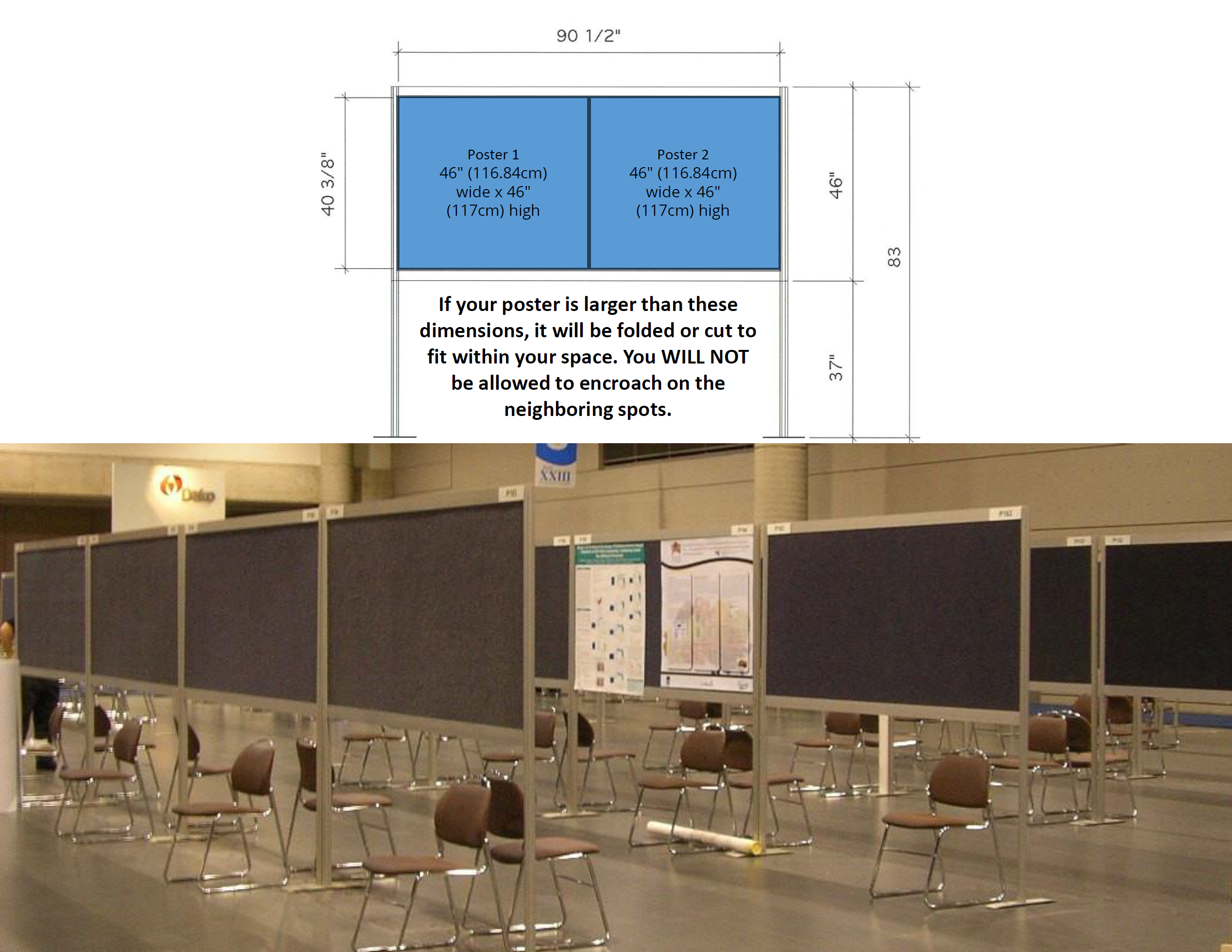
Click to enlarge
*No onsite poster printing is available*
Late-breaking Posters
After the initial submission deadline, late-breaking posters can be submitted. The submission window is notably smaller, be sure not to miss deadlines posted in the deadlines section or key dates page, as extensions cannot be granted.
Not-for-profit research institutes and universities are able to submit their research findings as part of the call for posters. This will be displayed within the topic area of Institutional Research.
Reviews of fields or techniques
Individuals may choose to submit a poster presenting a review of a specific field or technique. These submissions do not need to contain original work from the author and are intended to be an introduction for individuals not familiar with the field or technique. These review are not meant to be advertisements (e.g. it is not acceptable that the poster is an advertisement for a book or other type of commercial publication).
FAQ
Q: Can I submit more than one abstract?
A: Yes, but the same person may not deliver more than one talk. We encourage labs to involve multiple presenters. The same talk is not permitted to be given more than once as an oral presentation at ISMB. Research may be presented as both a talk and a poster if and only if it is submitted as two individual submissions with TWO different presenters. Having the same person deliver two (or more) different talks is NOT PERMITTED on the same topic. This allows for many people from one lab to present the work of the lab. A presenting author may present NO MORE THAN ONE talk or poster on the same topic.
Q: Should I submit a PDF of my poster when completing my submission?
A: No, please only submit the poster abstract. Closer to the conference all accepted poster presenters will upload a Poster PDF and short 5-7 minute MP4 talk to the virtual conference platform.
Q: Can previously accepted work be considered for a poster?
A: Yes, we do ask that you note the year the work was published and provide the Digital Object Identifier (DOI) during the submission process.


